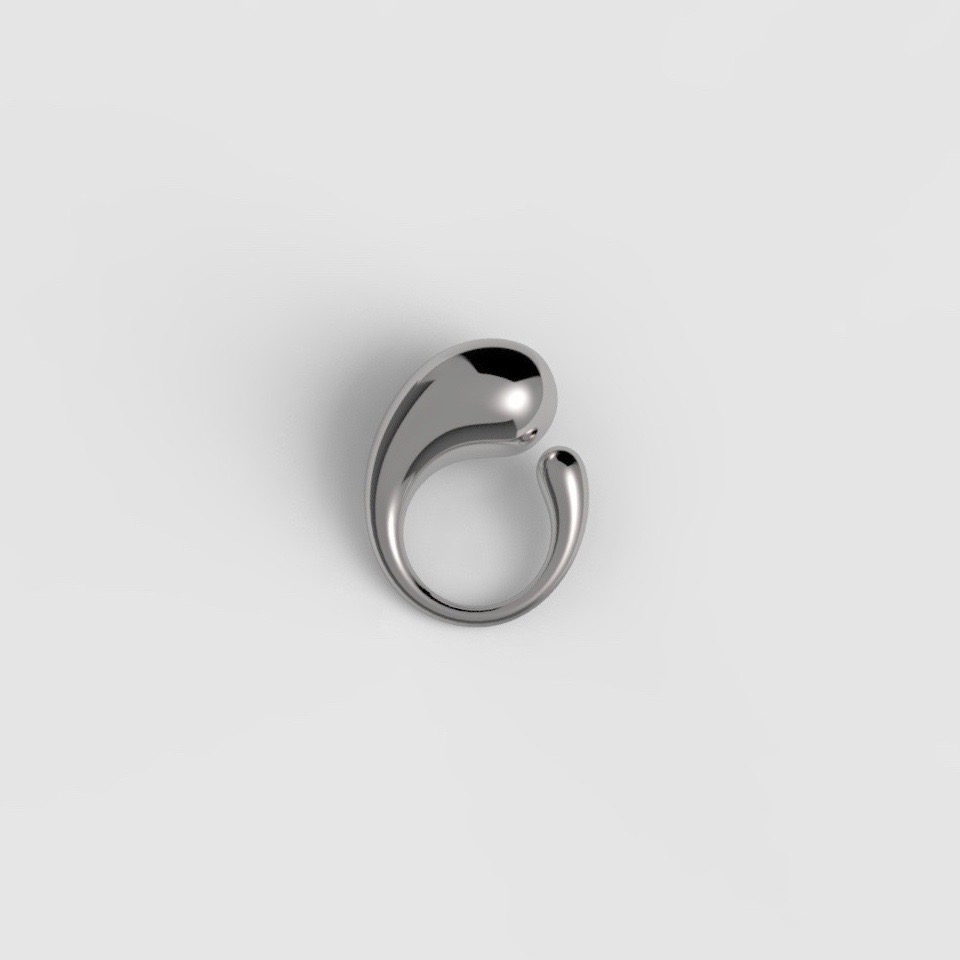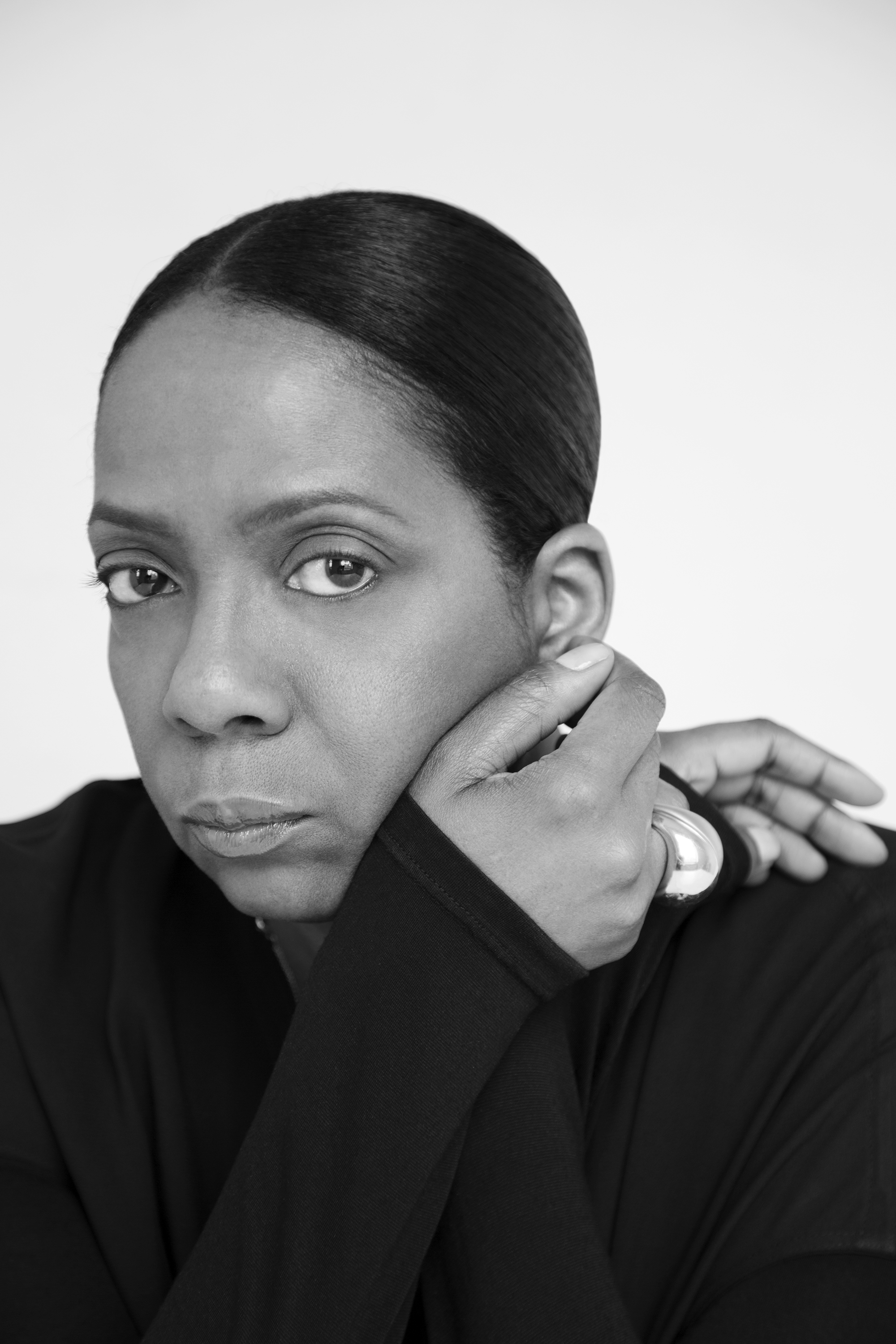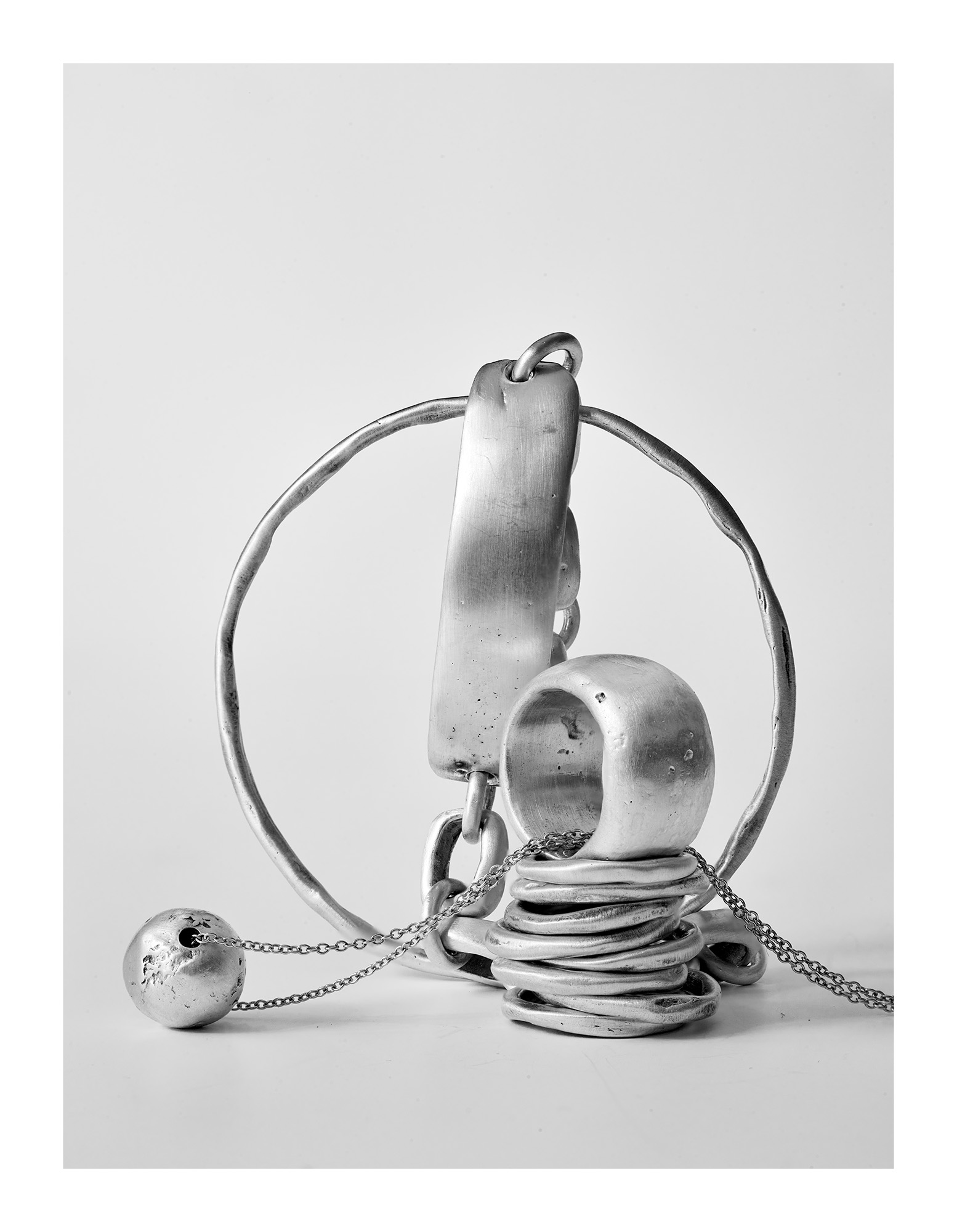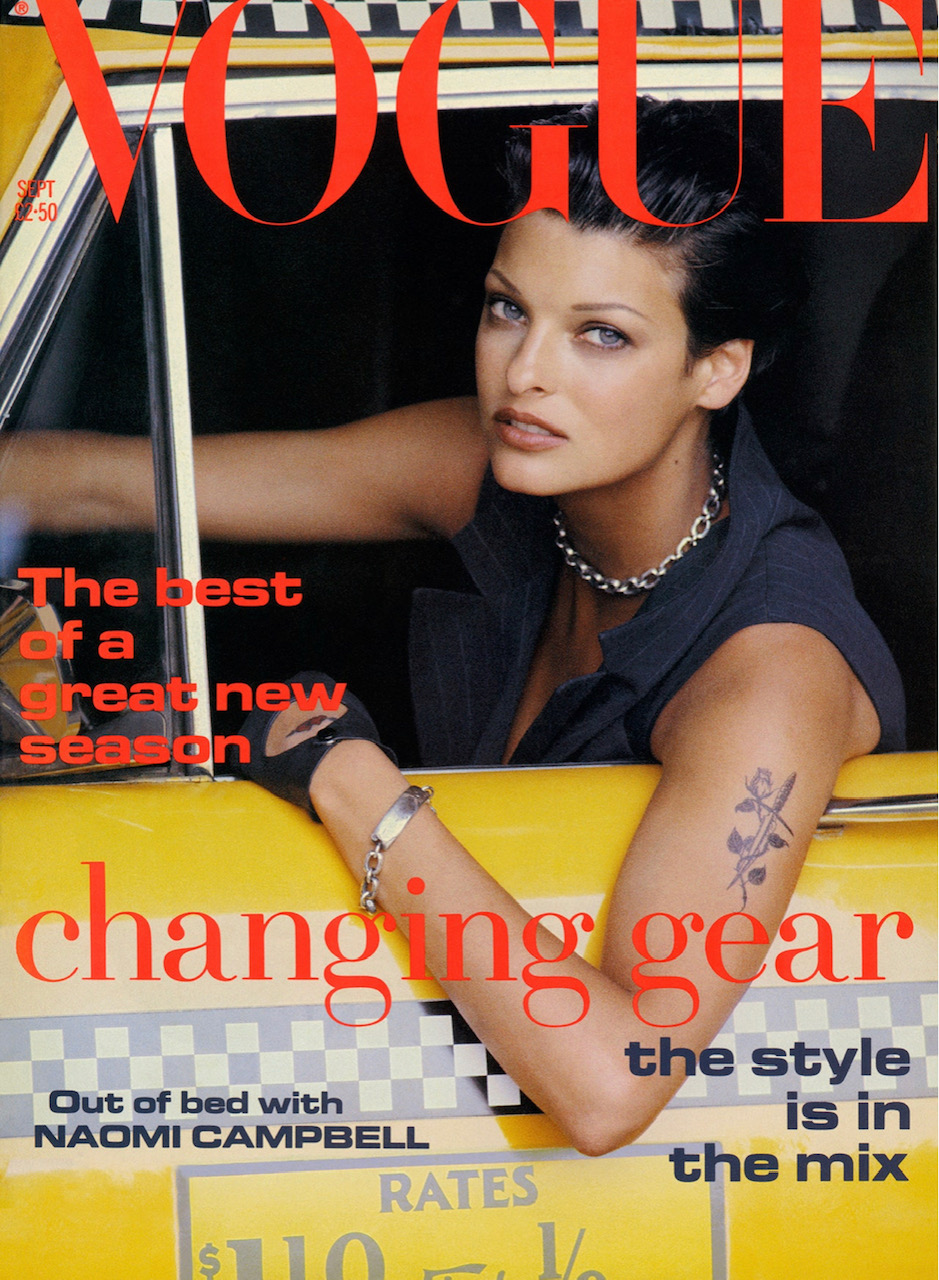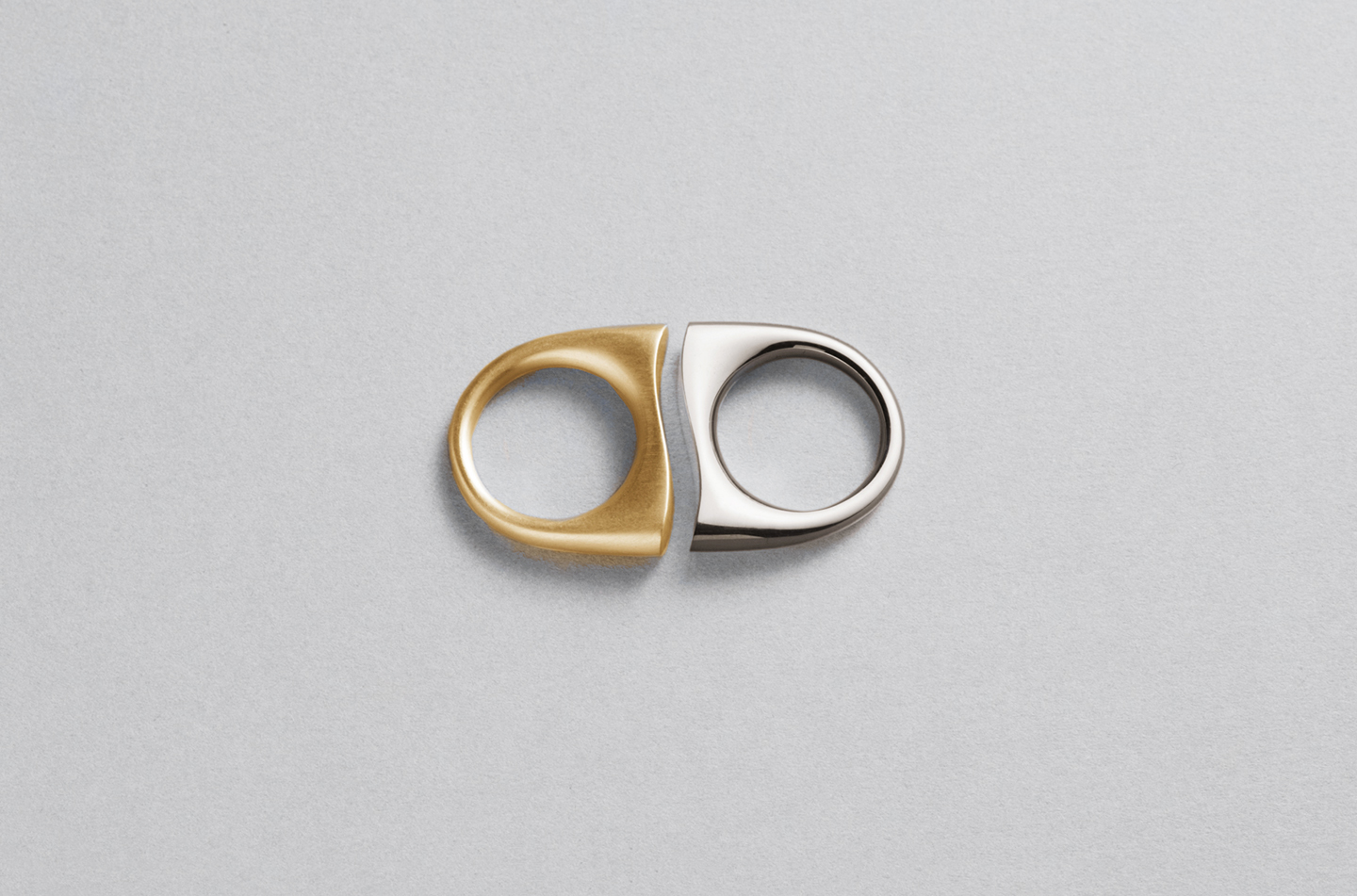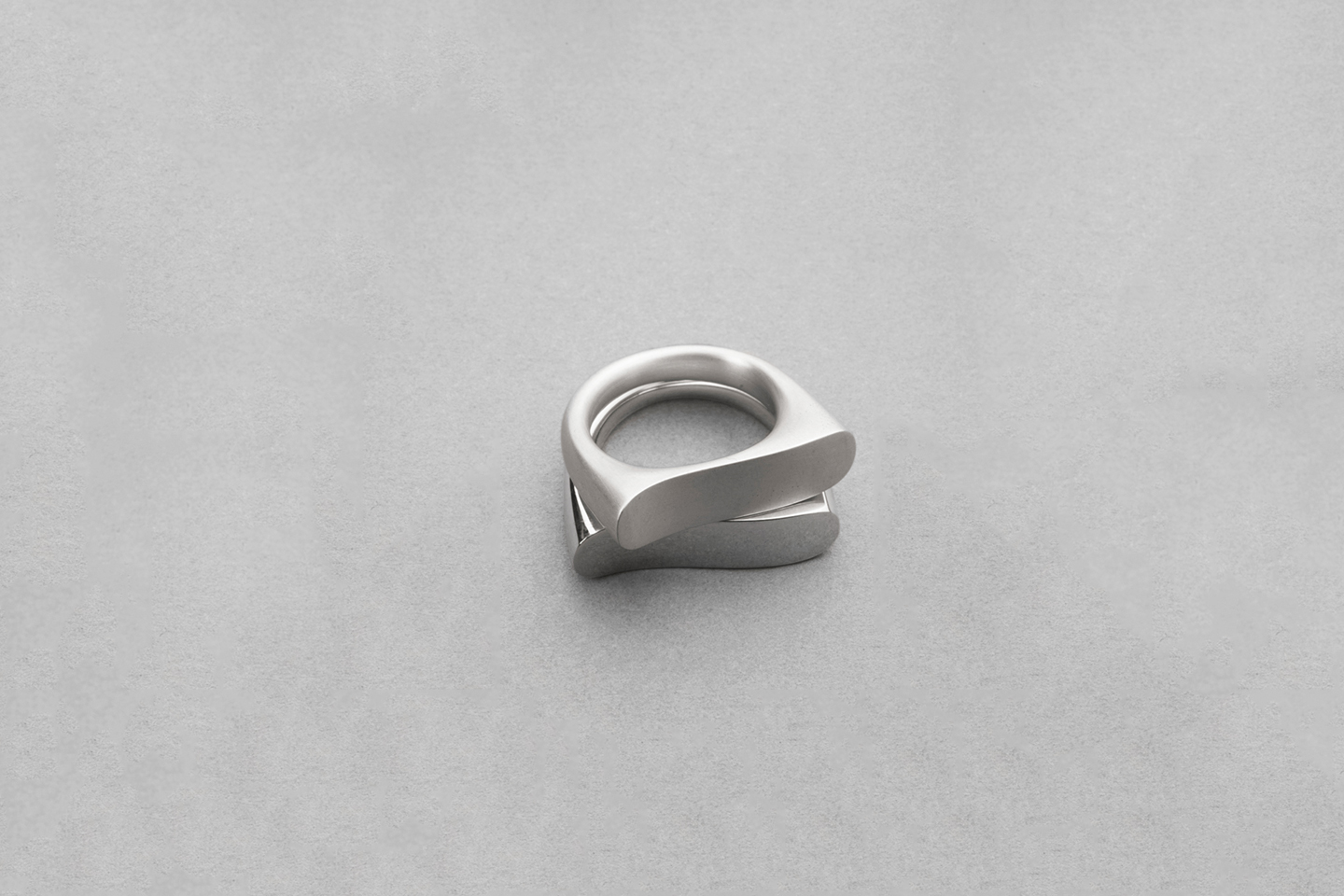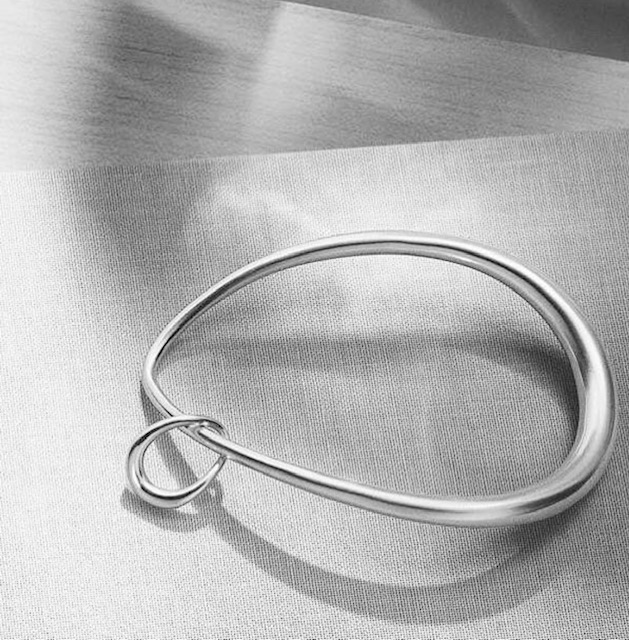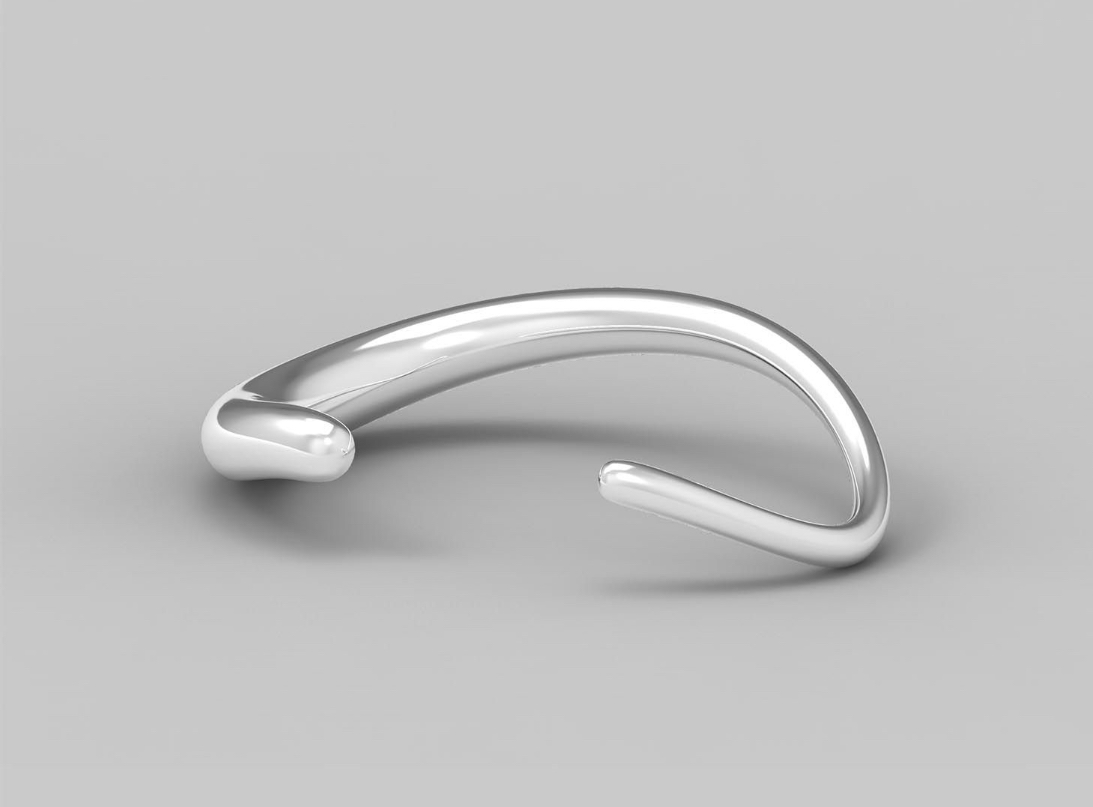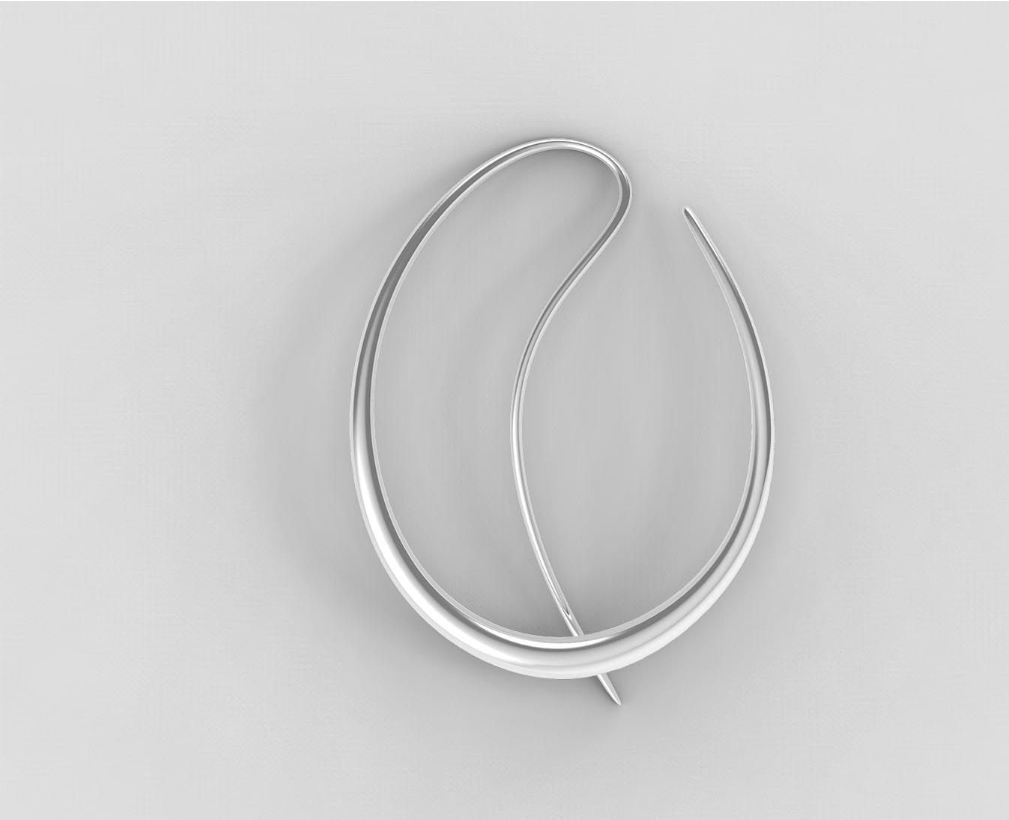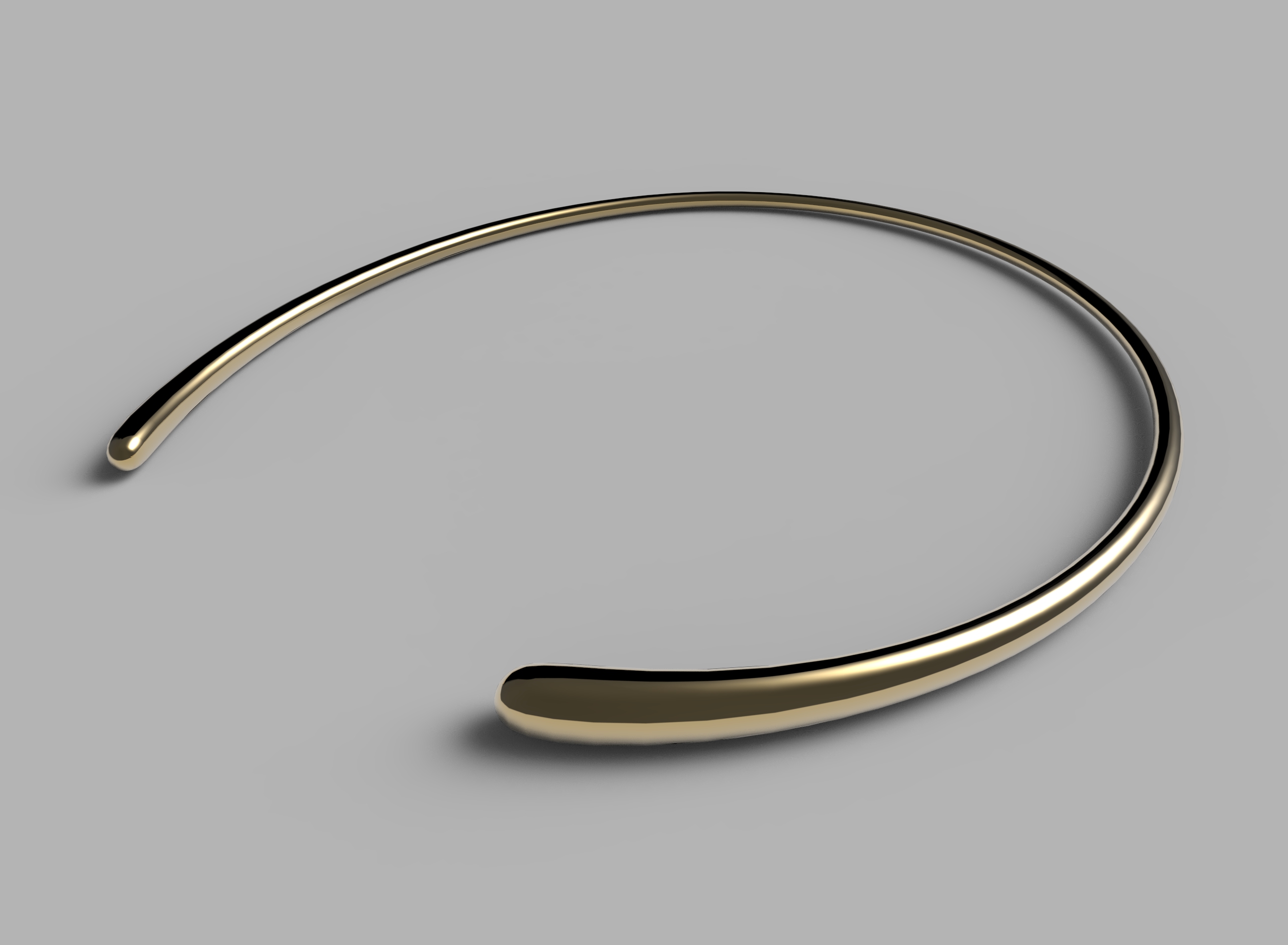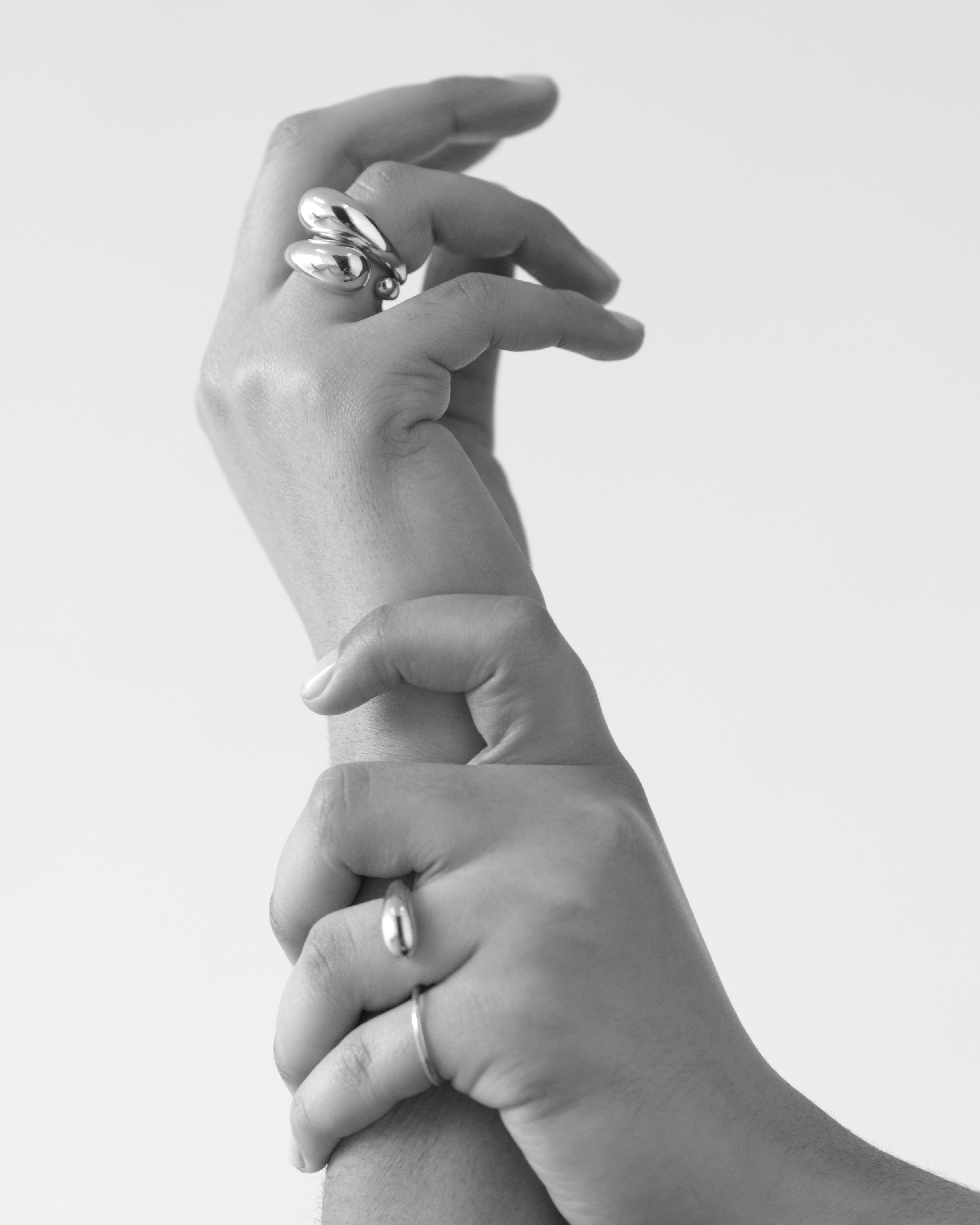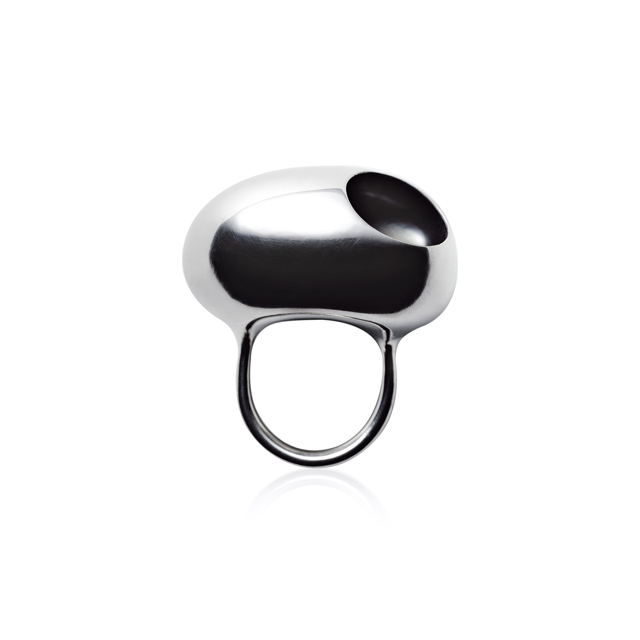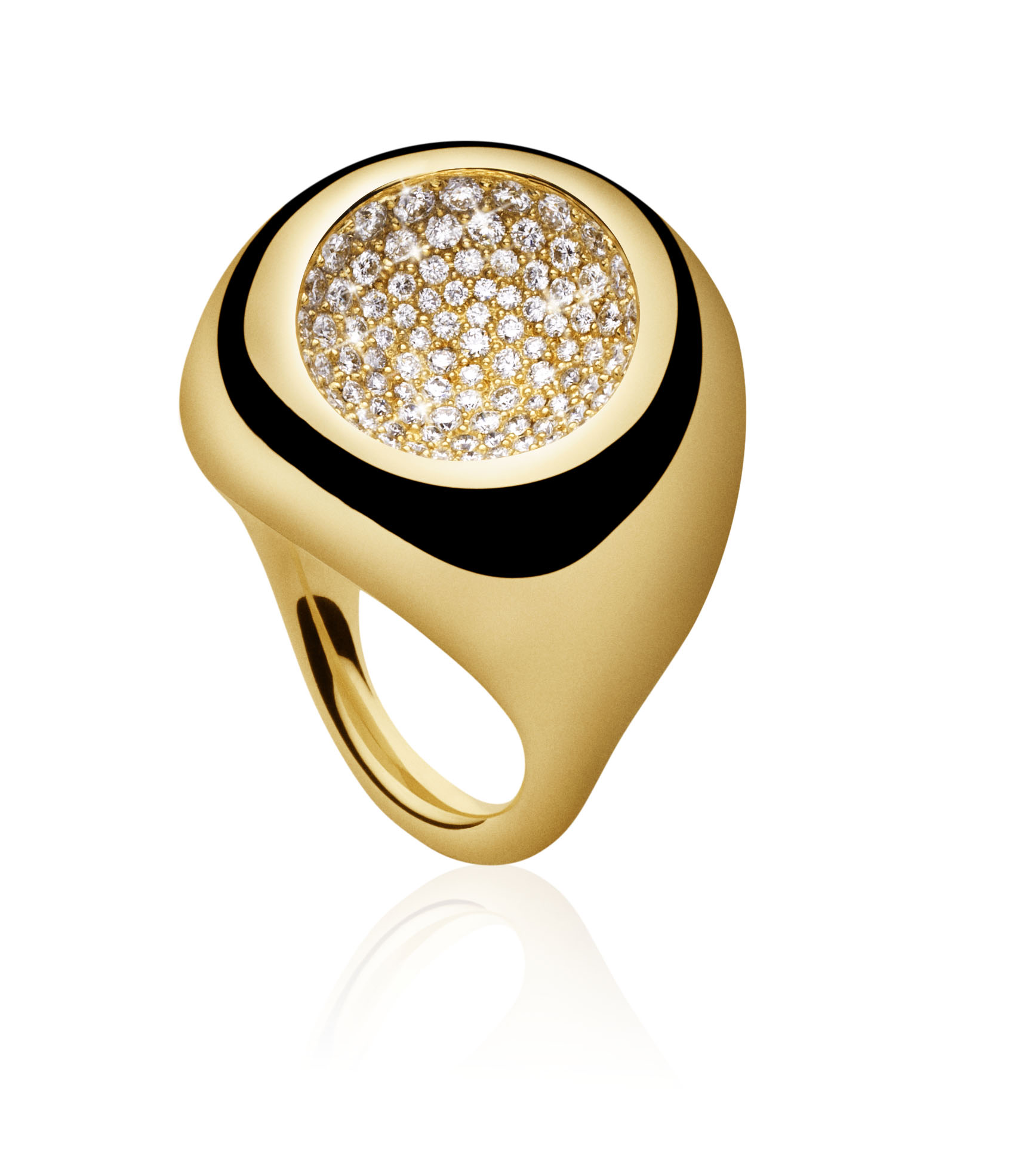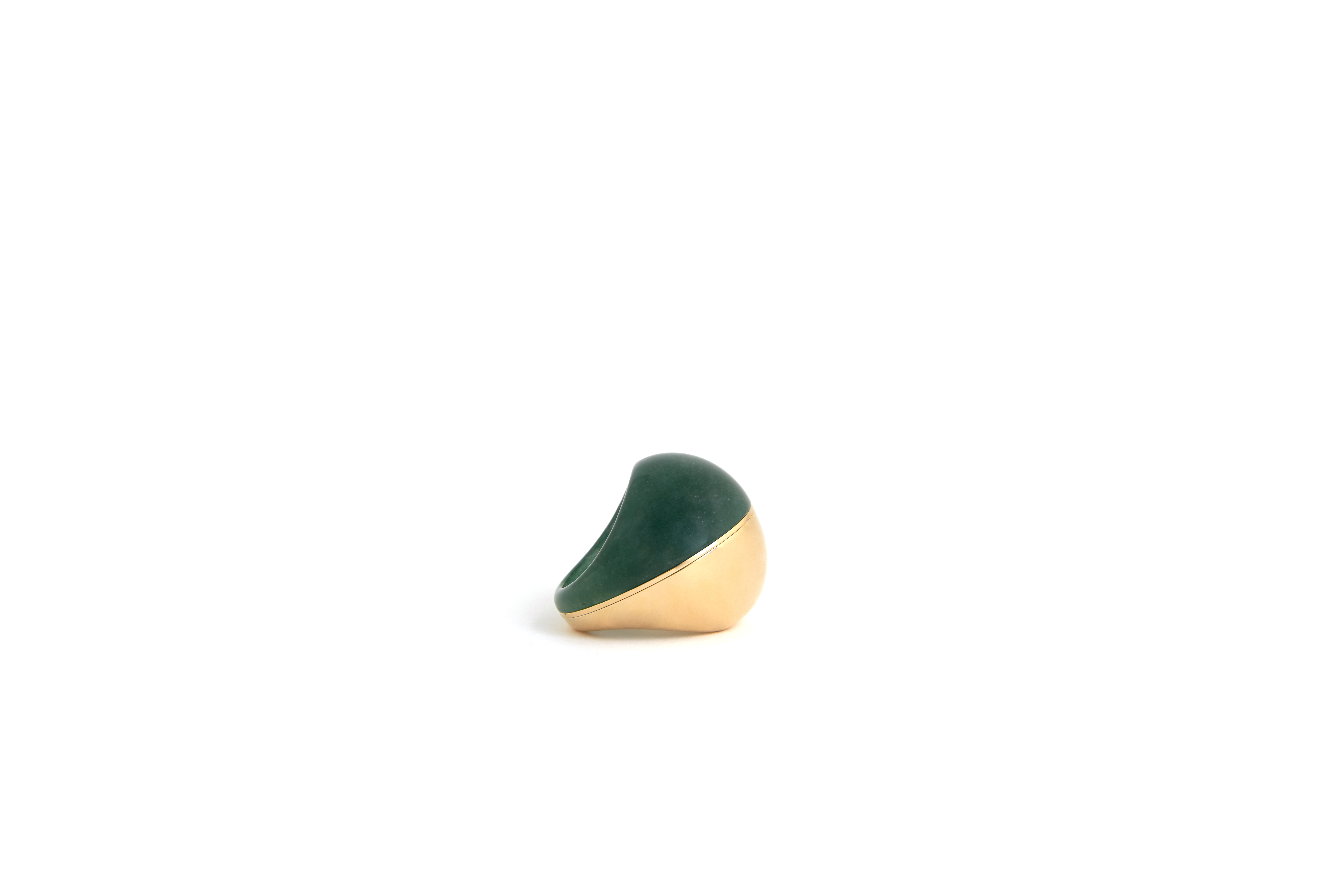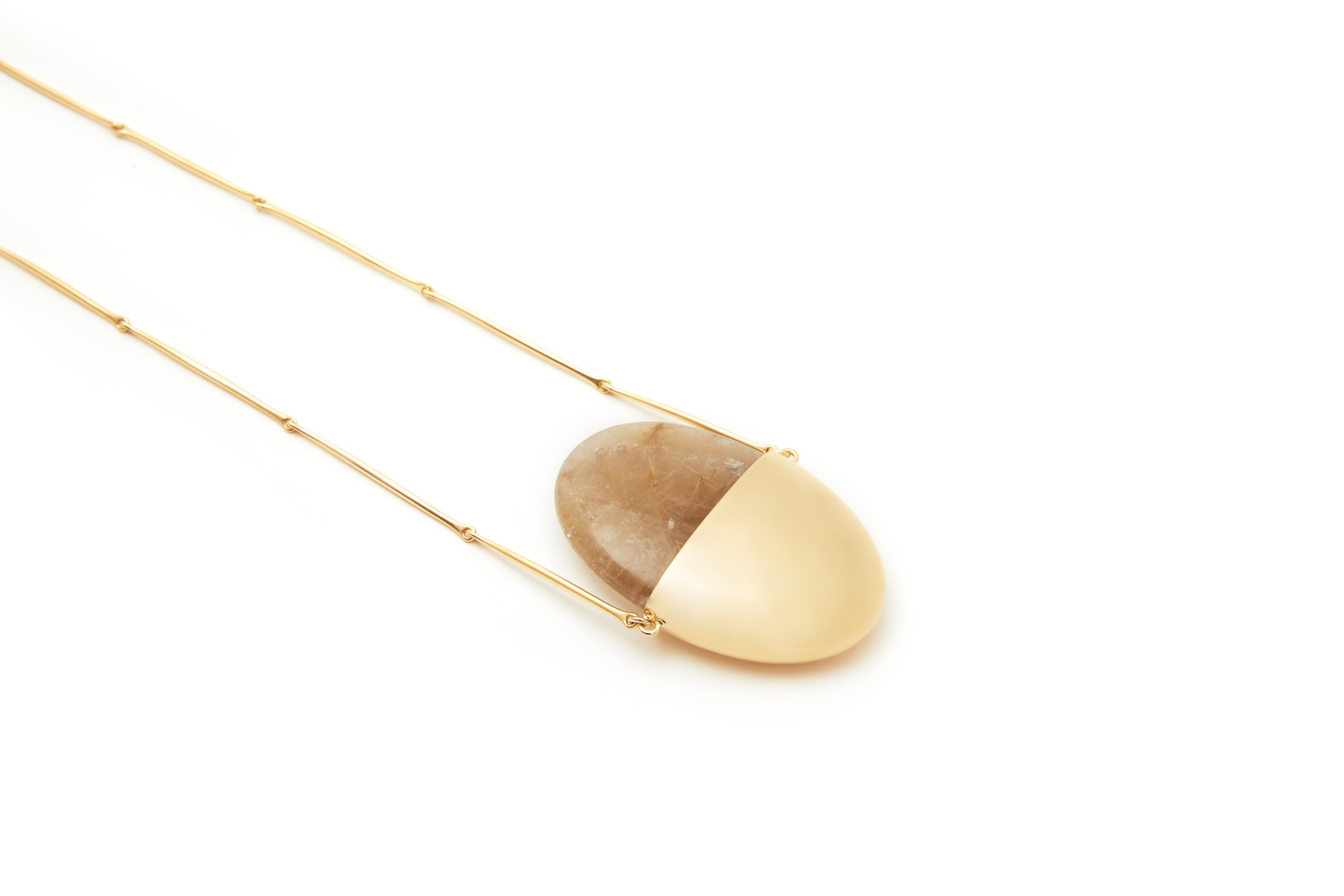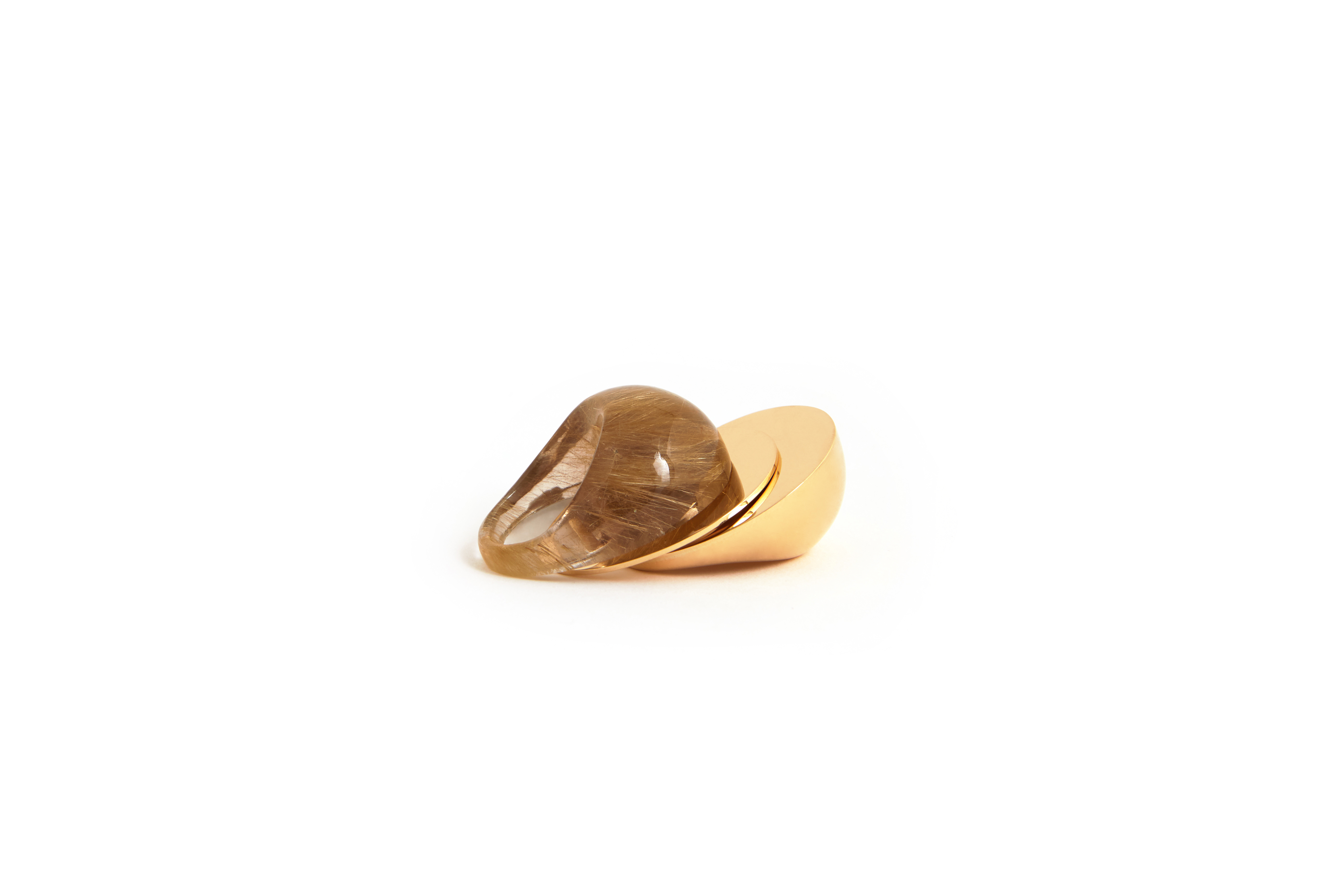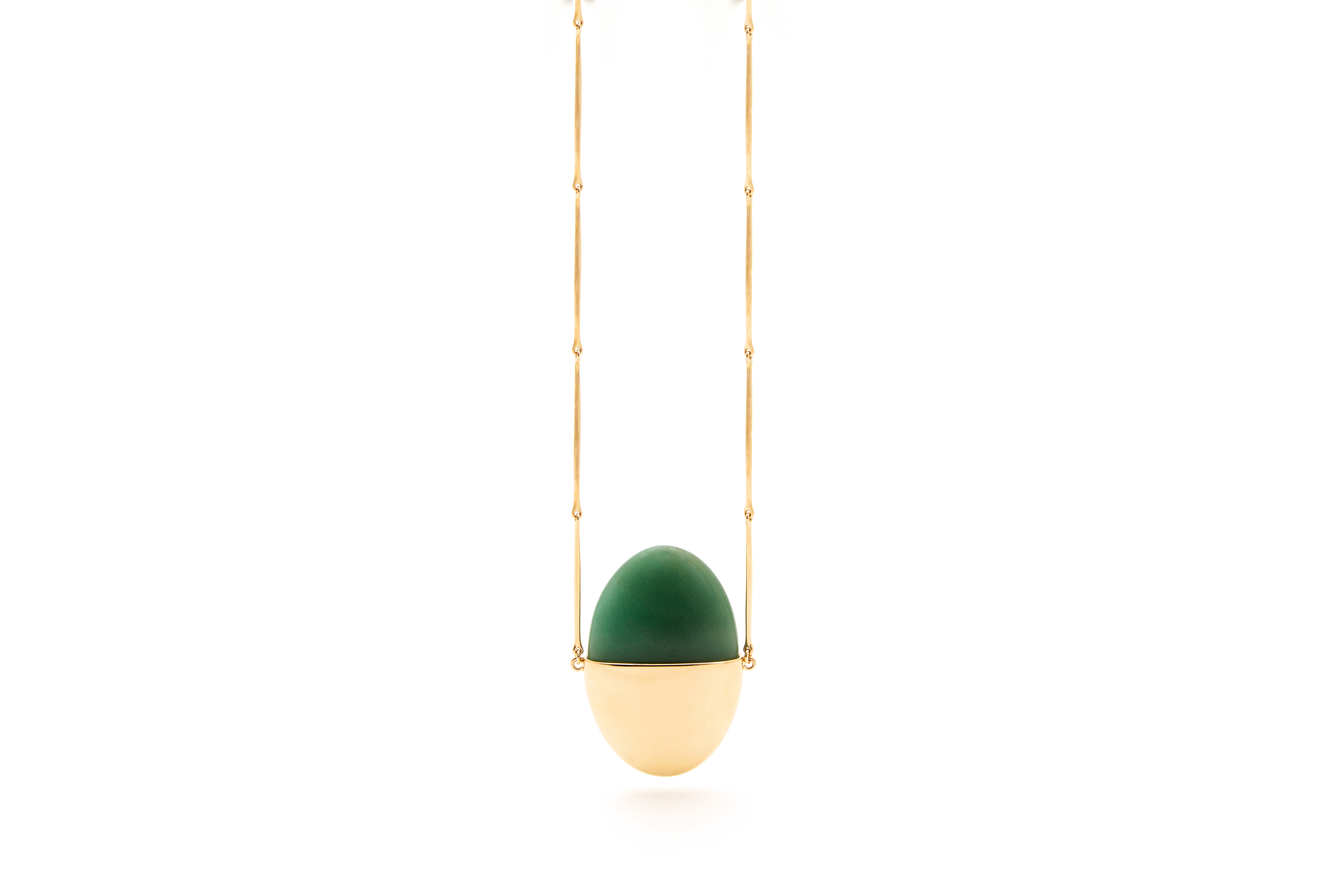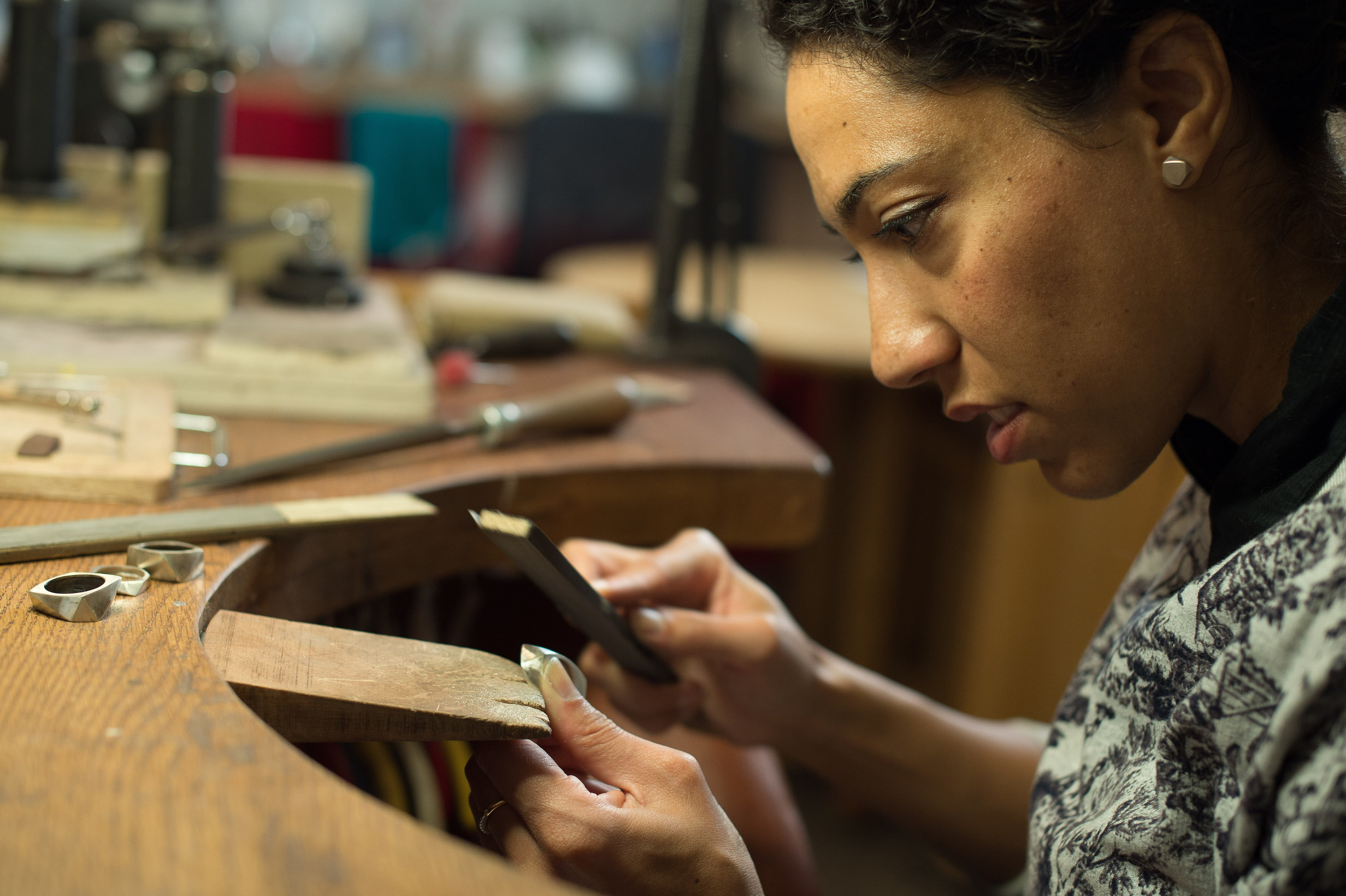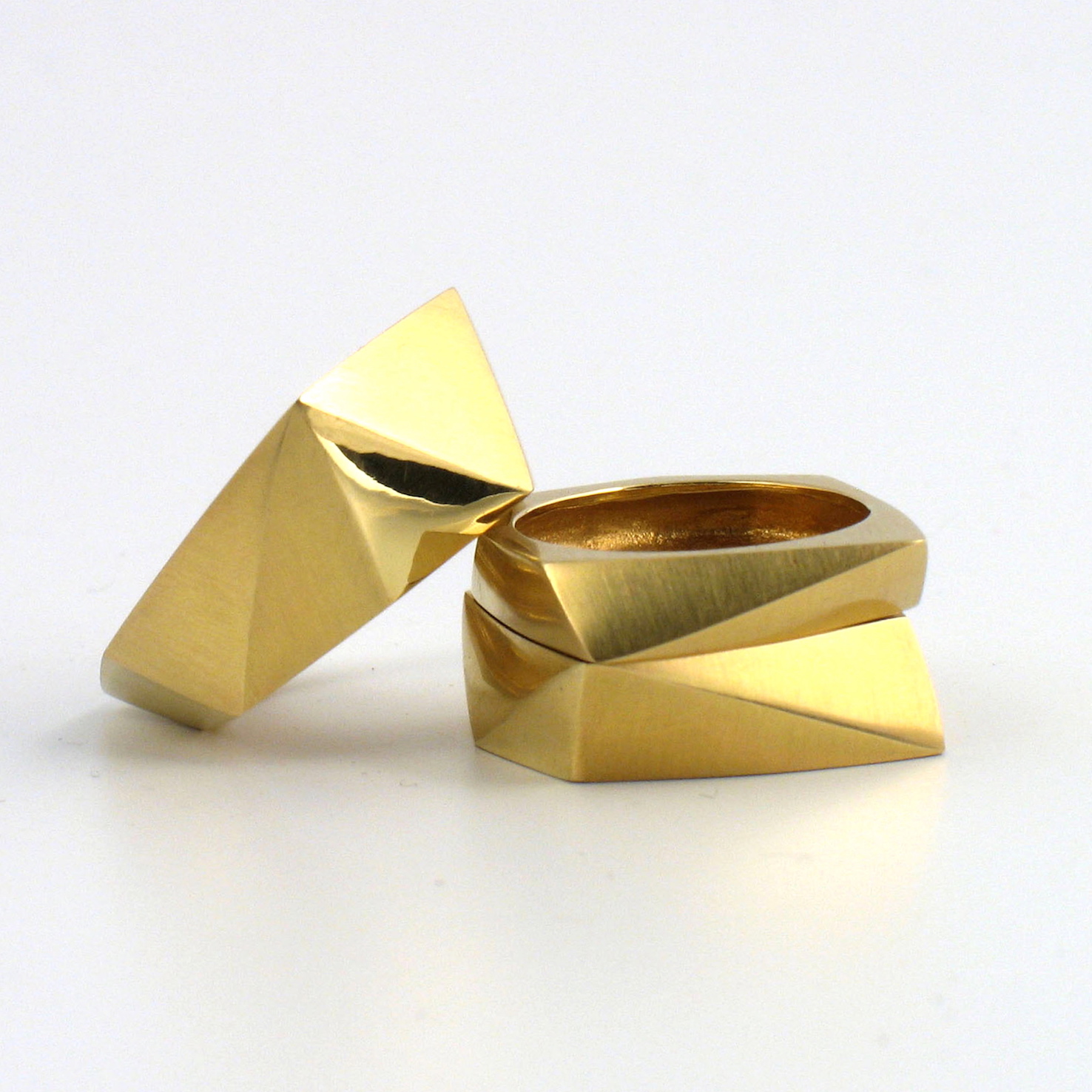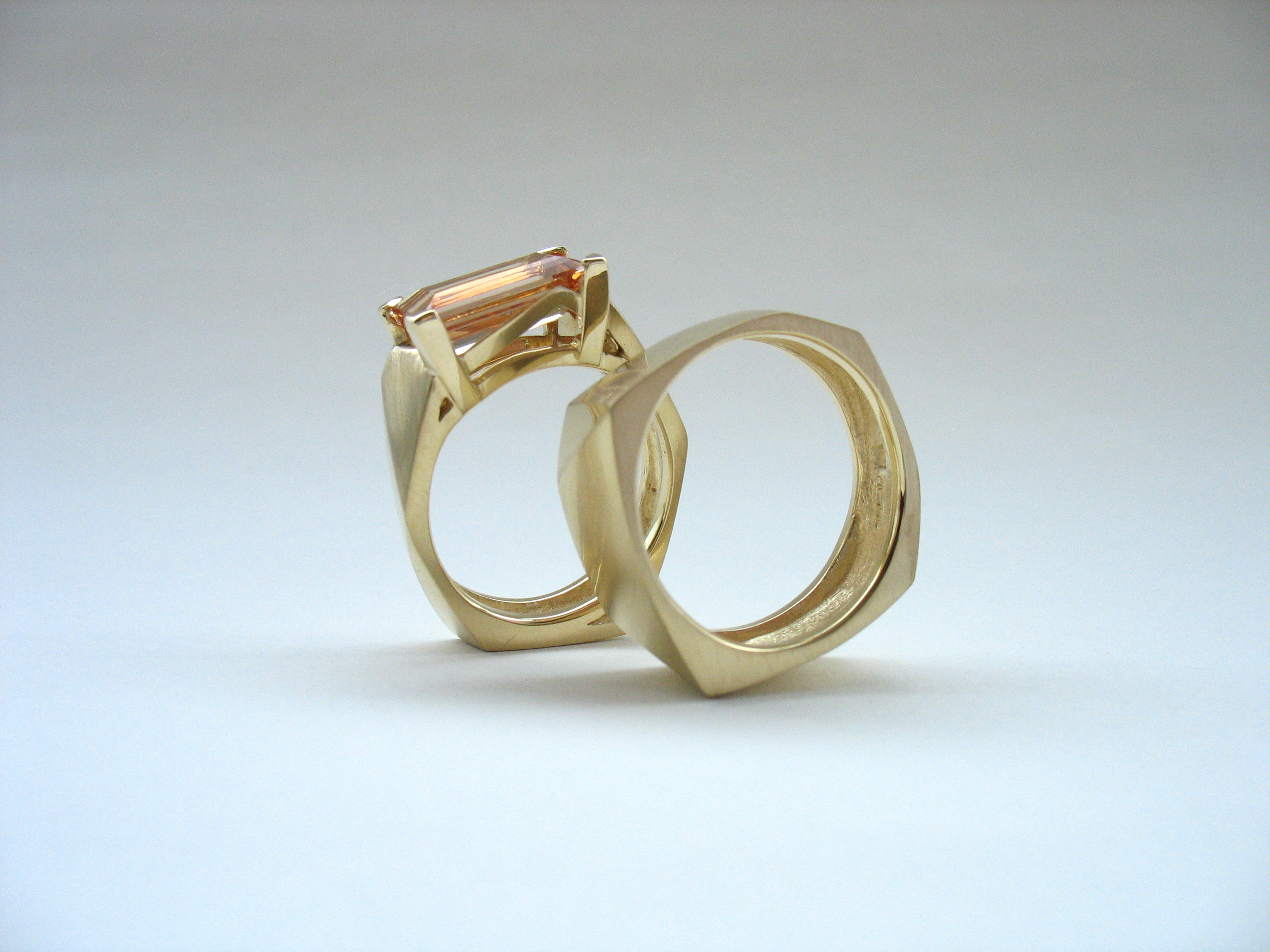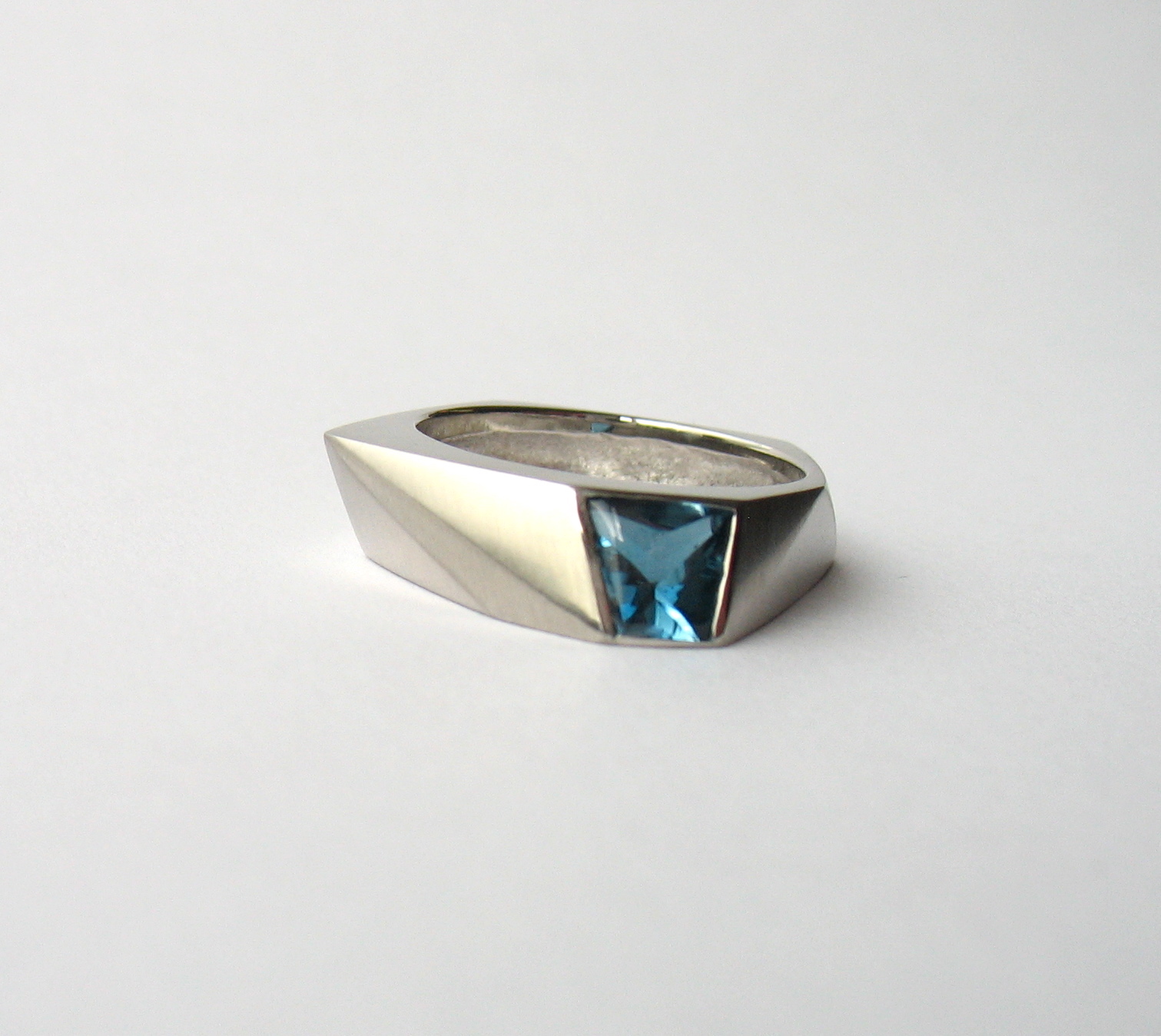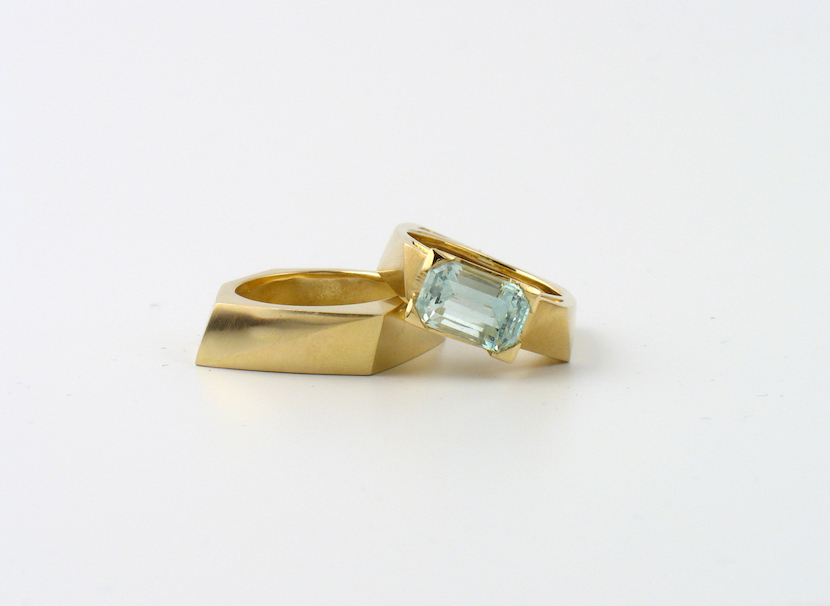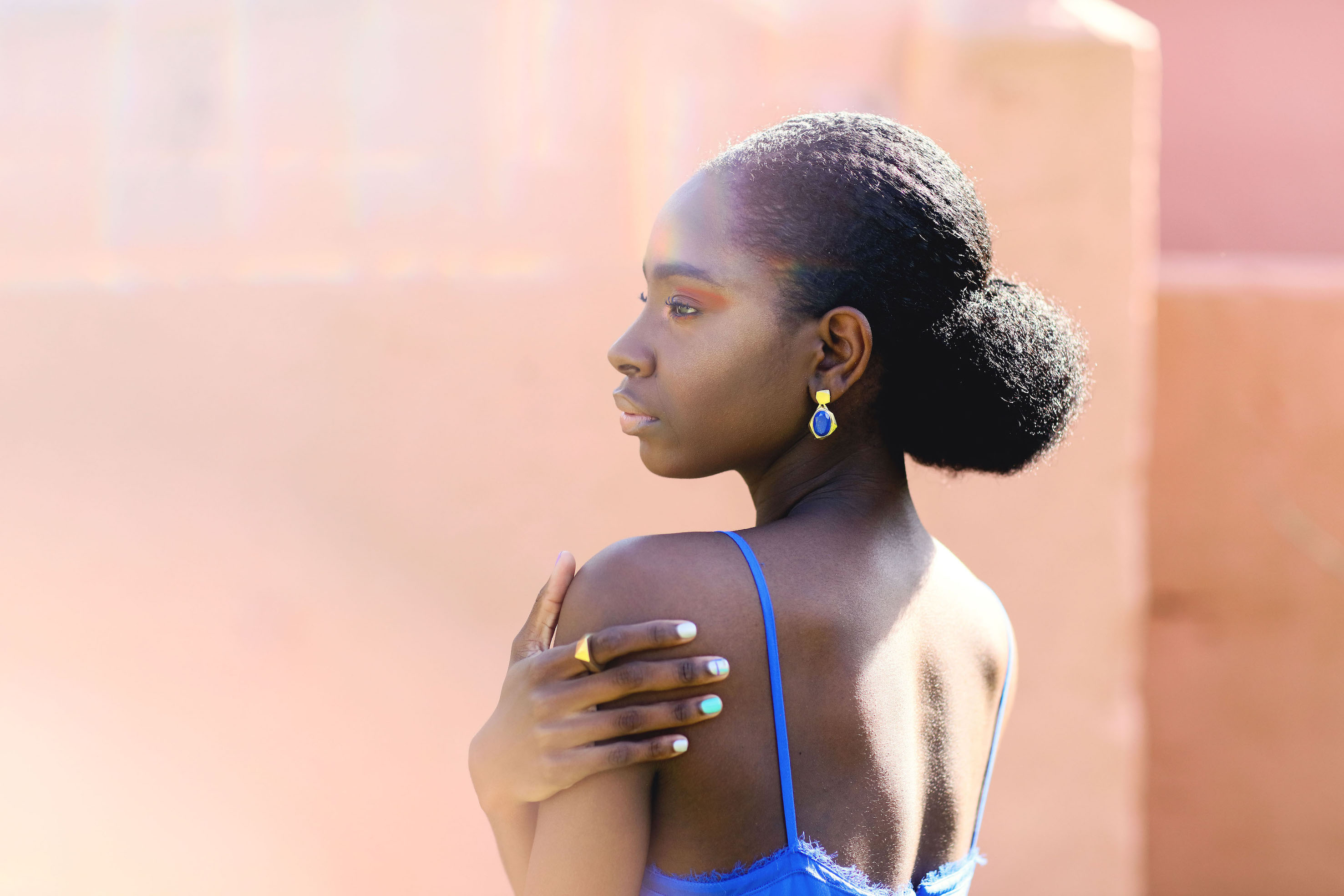“The most important thing that you can do is strengthen your design language. It takes time. It takes a lot of patience and practice, sitting down and asking yourself the same questions; why am I designing jewellery? Why do I do this and what do I want to say with my work?” It is mid afternoon on a surprisingly hot early Autumn’s day in London and Jacqueline Rabun, is in a reflective mood as our discussion moves on from her beginnings ( which you can read more about in the previous post) to legacies, impact and the work still to be done. When I ask what is the raison d’être to why she continues three decades on to design and create jewellery and objects for her legion of collectors and fans globally; unsurprisingly for an interview subject who has proved both profoundly sensitive and ethereally gracious, it is not a case of making adornments for the sake of. “I believe that it is important for jewellery to make you feel empowered, uplifted and calm. It needs to make you feel inspired and that’s really important in my work. [Subsequently] I also try to keep my energy in a certain place because I know when you are creating something, the idea needs to be born with the right energy. And when an idea is born out of the right energy, the world will embrace it.” It is a truism that would resonate with many creatives, the proverbial reaping what you sow, and thus the need to sow with the right ‘head and heart space’ but Rabun’s assertion goes beyond the jewellery she designs to the spaces it inhabits both before and after purchase. In this second part of a special retrospective, we look at the myriad of ways in which she has played the role of pioneer in the jewellery industry, how recent conversations on inclusivity have brought challenges and opportunities and how she sees her contribution evolving in the years to come.
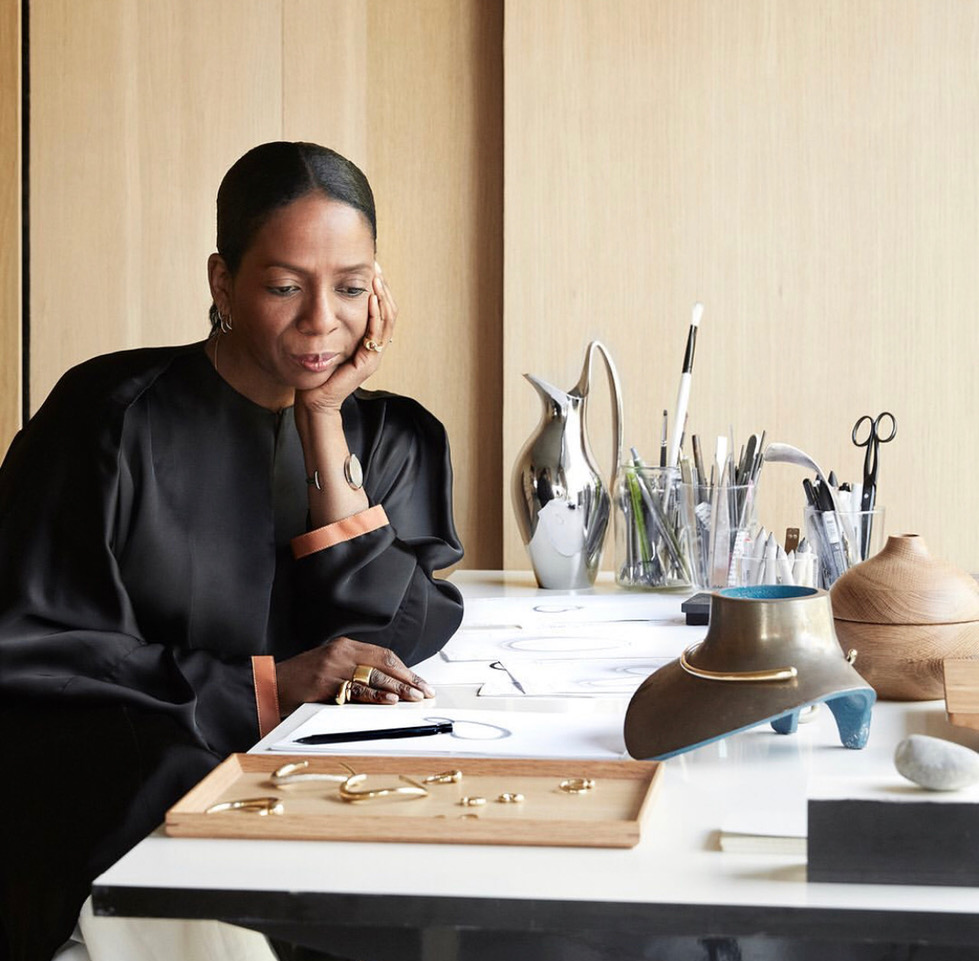
Changing the Marketplace
Think High Jewellery and one’s mind wonders to rarefied rooms upholstered in tasteful creams and beige with impossibly coiffed assistants hovering to attend to your needs and discretely placed security, ensuring you don’t do anything dastardly. For the habitual client this set up with its unsaid codes of conduct might be easy to navigate, but for a freethinker like Rabun it was stifling and desperately in need of change. In many ways reflecting the seminal 1998 essay “Welcome to the Experience Economy” published in the Harvard Business Review by B Joseph Pine II and James H. Gilmore which stated that ‘An experience occurs when a company intentionally uses services as the stage and goods as the props to engage individual customers in a way that creates a memorable event.’ Rabun’s stand alone jewellery store in Belgravia ( a first for a person of colour) was very much a retail event. Situated in a converted mews house, the interiors riffed on the domestic luxury experience, with a hanging canopy of plants, and jewellery positioned in unexpected places, such as inside an antique desk, ready to be ‘discovered’ by the browsing client. The store itself did away with the burly security guard at the front door and customers could wander around with a piece on their body and get a ‘feel’ for it in a seemingly homely setting. The space also opened its doors to artists with exhibitions, dinners and talks all part of the calendar of events. She adds “I wanted the store to be welcoming and a place where you were transformed the minute you walked through the door. I wanted the overwhelming feeling that you took away to be a sense of well being. A lot of clients would come in and they would say, ‘ooh I don’t want to leave and go out into the world’ because it was very calm. We were very conscious about everything, we always burned sandalwood for instance as sandalwood purified the air, basically it was about touching all of the senses in every way.” Of course now, we have gotten used to this sort of set up: from the Matches.com townhouse in Carlos Place in Mayfair and the Burberry flagship store in Regent Street and countless others in other global cities with their gallery shows, concerts and cups of tea and wine dispensed as much as any item we might wish to wear. However, actualising this in the mid noughties, Rabun was arguably one of the first, and particularly so in the jewellery sector.
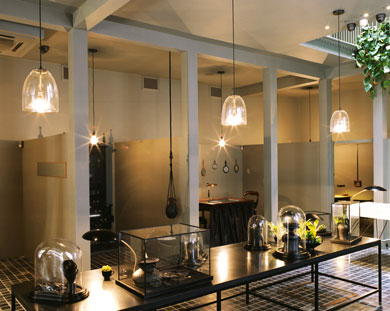
Rabun is passionate about architecture and it has had a profound effect on her jewellery practice, both in terms of inspiration and how she presents her work. “I really love John Lautner…If you live in a John Lautner house it represents living as a free spirit and that is my attraction to it.” She notes of the Californian architect whose light flooded designs have inspired many since. She adds “Richard Neutra gives you the same feeling, it is that school of architecture that was centred around case studies about how we live , and how are we going to live in the future, [and] that is how they were thinking. Now when you look at those houses they are just as modern and so many architects have been inspired by that way of living. However, ultimately those houses for me represent freedom, serenity and the ideal way to live.” In her own way, Rabun has enthused similar concept into her retail spaces. When she moved operations to her loft-cum-atelier in Clerkenwell, the guiding principles of light filled spaces that were simultaneously welcoming and calm, was adhered to. And as is the way when what you’re offering is truly special both spaces had extensive features in World of Interiors and Rabun herself was invited by the global design and furniture pioneer store, Habitat to curate a space in their store that reflected her design aesthetic.
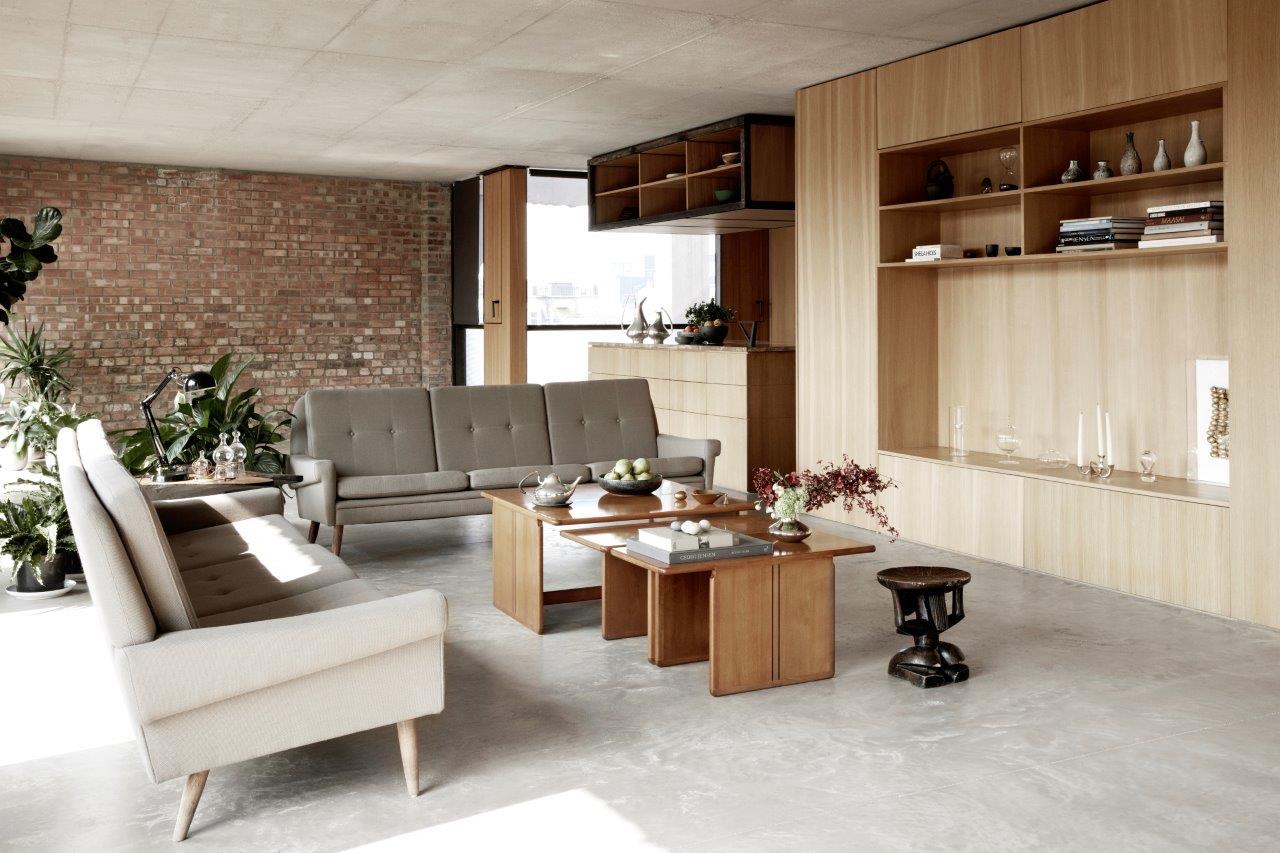
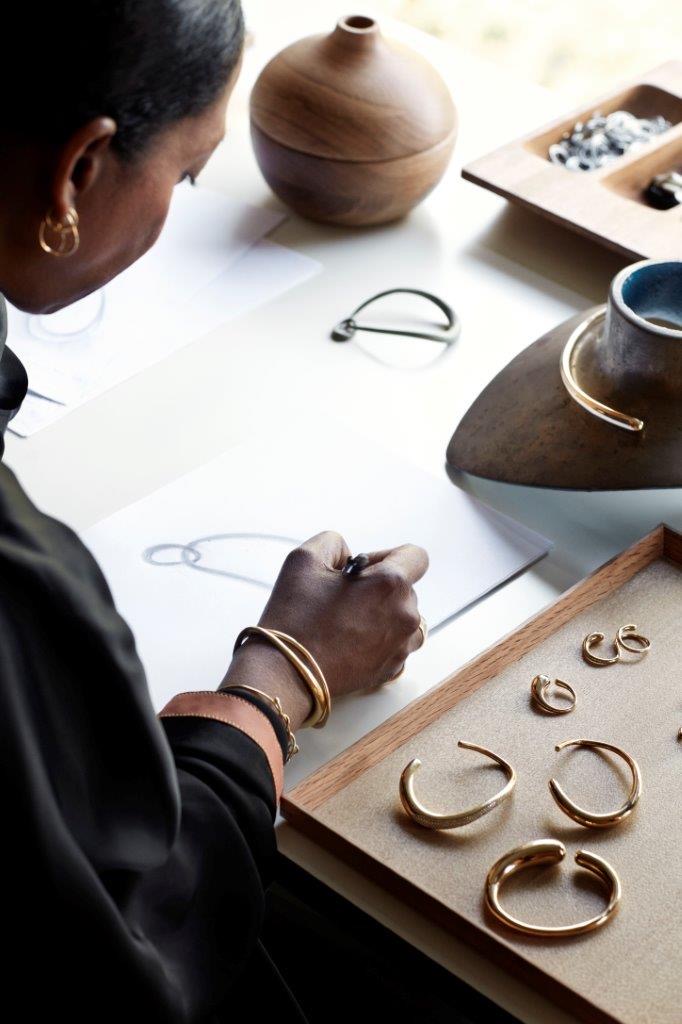
Finally, another area where Rabun is considered a pioneer is in the popularising of naming collections and not just ‘star turn’ pieces, suites or the gemstones utilised themselves. Reflecting on her long-term collaboration with Georg Jensen she notes that “Nicholas (Manville, Chief Creative Officer at Georg Jensen) said I was the first designer to start naming their collections and he said that you’re the only designer at Georg Jensen that has a story to tell that is emotional around your work. No one else does it.” In seeking to put a name to the emotional landscape that a jewellery series inhabits and the feelings it solicits and not just the gemstones involved or the pieces created, Rabun charted new ground for what has become standard practice today.
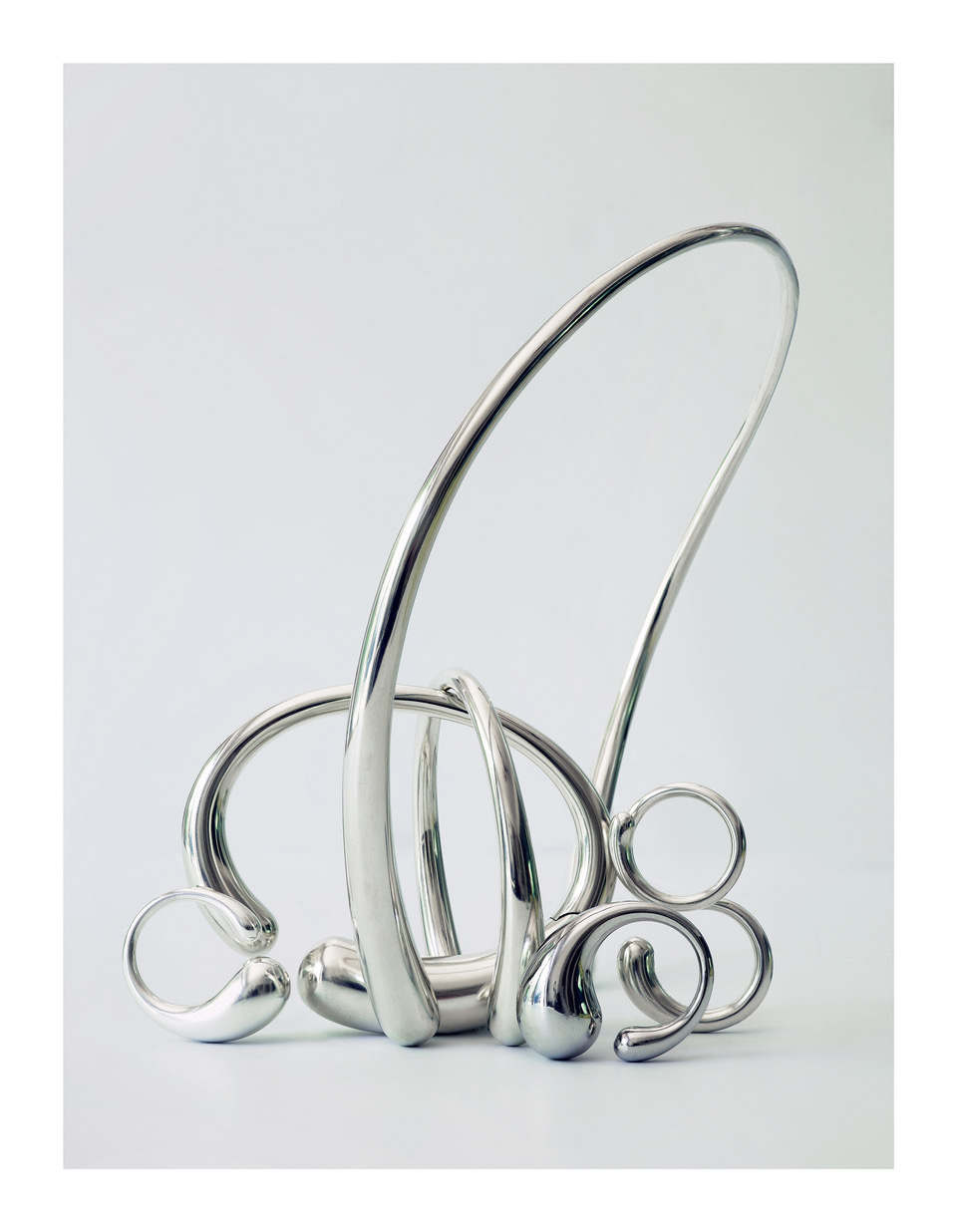
Challenging Seasons
A career as long as Rabun’s does not occur without incident. Both on a global level; witnessing recessions, pandemics, conversations on racism and gender parity and inclusivity, as well as on a personal level: building and maintaining a business, raising a family and spending many years away from home. Inevitably, we alight on the topic of race, an issue that has been re-ignited with the murder of George Floyd and the unprecedented protests that occurred in its wake, but as Rabun points out, none of this is new: “African-Americans particularly have always had it hard because of the history of slavery in America. We really have had to fight for equality and the right to simply express ourselves. We have had to fight for the bare minimum.” When I ask her about how the recent protests, online debates and discourses affect the jewellery industry and the challenges therein her response is refreshingly frank. “I think that it has to start with us.” Expanding on her thesis Rabun adds “We have to develop our voice around our work. It has to be emotive… I think that is the big starting point…Also I really believe it is your experience and the road you travel down that actually develops your design skills and even those things that are negative such as rejection and being overlooked can actually be the most powerful fuel.” A lot of the discourses have been about inclusion based on past injustices and structural prejudices that work against people of colour. However, Rabun also points out that once space has been found at the proverbial table, the offering has to be compelling if it is to be successful long term. It is a piquant reminder that getting attention, press, accolades and even public apologies is very different to building a commercially viable and successful business. In our age of chasing likes, fame and mentions her approach which puts the work, development of a unique voice and building the client base back in the forefront feels almost novel.
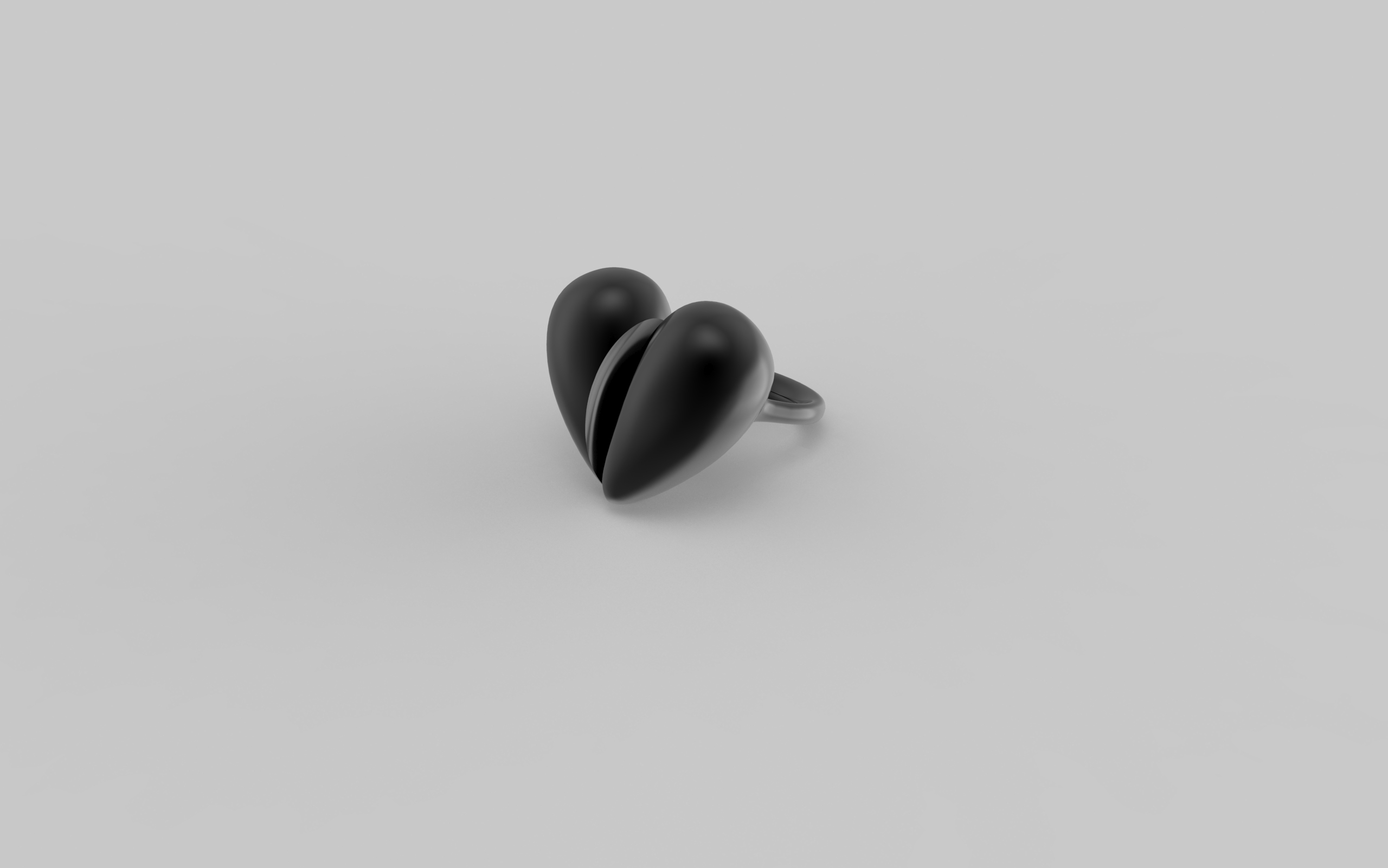
This is not to say that her work has not been influenced by or responded to race and racial issues. Her ‘Black Love’ series ,designed in 2015 “was a symbolic gesture around the injustices met out to African Americans and was a response in particular to 2014, when so many young men were being murdered. It was also focused around the idea that we as black people simultaneously bring so much actual love, creativity and joy Into the world but also need to find space to live and to find the beauty in that struggle, which is not easy.” To evoke these varied notions Rabun reimagined the classic heart classic motif: “It is made from two seed forms as the seed is also a symbol of new beginnings and life itself. The seeds come together to form a heart shape and when they come together they cradle into one another.” The series is available in oxidised silver which takes on a black appearance, yellow and white gold, and in light of the tumultuous events of this year has gained added poignancy. She also hoped it would encourage greater self-love for black people, who could wear the pieces as one would a talisman, reminding them of how amazing, precious and valued they are in a world that systemically is designed to often make them feel the opposite.
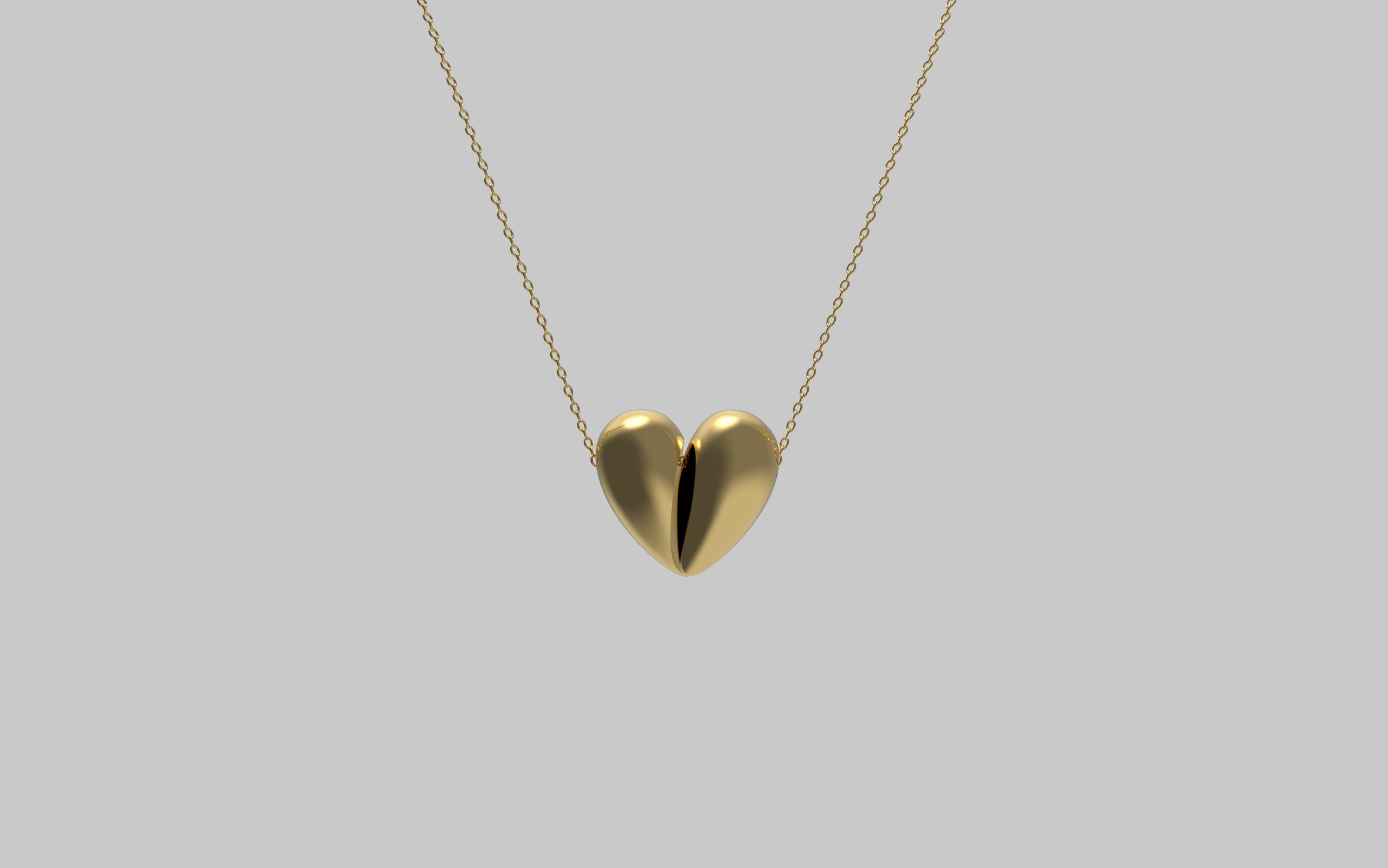
Rabun is quick to correct a misconception that hers has always been a charmed existence, thus making her out of touch with practitioners, particularly those of colour, currently struggling. “I was thinking about this, this morning. When I was younger, I remember that with my parents we never left the house unless we were immaculate and shiny which is quite a lot for a small person….[but] 1960s America was very racist so if we walked out the door looking our let’s say Sunday Best, that was our armour. They could hate us if they wanted to because we were black but they couldn’t get us on anything else…. So I obviously can understand what people are feeling, younger designers…I will speak about the jewellery world because in some ways it is a little bit more challenging than fashion as an industry. I think the art of patience and perseverance is really important and I think developing a strong design language, a strong voice, and imagery around your work is crucial. Fortunately, we now have amazing social media channels where you can do that. It doesn’t have to cost a fortune and I think that is what is so great about the moment that we are living in; you can have your own vision and your own world and you can express it on your platform and no one can stop you from doing that. And you can find your customers directly too. But I do think the most important thing is just developing your very strong identity so that when people see your ring for example they know it’s you. They don’t need your name. If you just put a piece of jewellery on the table they know. That is when you are winning to me.”
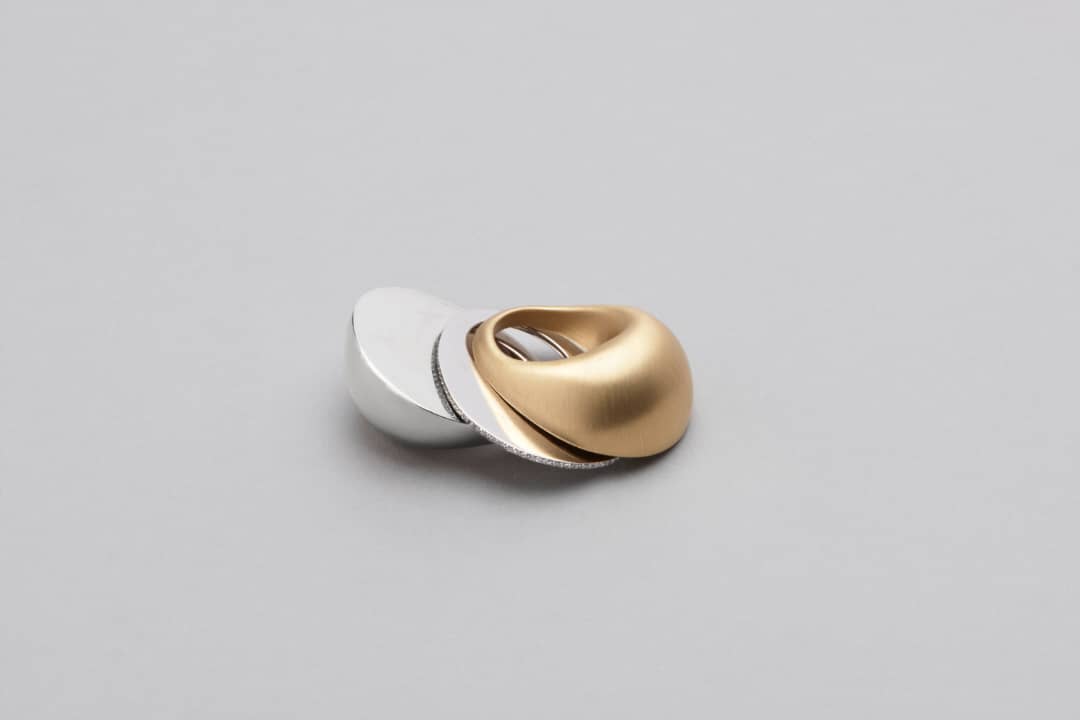
Regarding the 2008 recession which hit hard in the jewellery industry community, she reminisces “Yes, it was a challenging time for me and my business but it was also great time for me to focus on my intention. On how I move forward with my business. Also I had more time to create new collections and I also took time to just research and come up with a new way to approach my craft. But I did have a few collections that were quite commercial and they kept my business going which included the Alphabet Series and also the Wyatt and Beautiful Series. I think with any business there is always going to be ups and downs and challenging times. It is just a case of figuring out how do you ride through the storm to get to the sunshine? I think that is the challenge, and if you do it gracefully all will work out as it is meant to.” In many ways it takes courage and tenacity to not be overwhelmed or fatigued by structural injustices, but Rabun’s whole career has been underpinned by a determined pursuit of excellence regardless of the obstacles she may find in her path. When I ask her of who in the current crop of black jewellery designers she is enamoured by she replies with a smile; “Emefa Cole is great. When I look at her work you can feel a lot of emotion and you can feel that she has a very distinct vision about jewellery, that she is really focused, that she has got her own thing going on she has a very clear language and you can see that she is developing it and it is beautiful.”
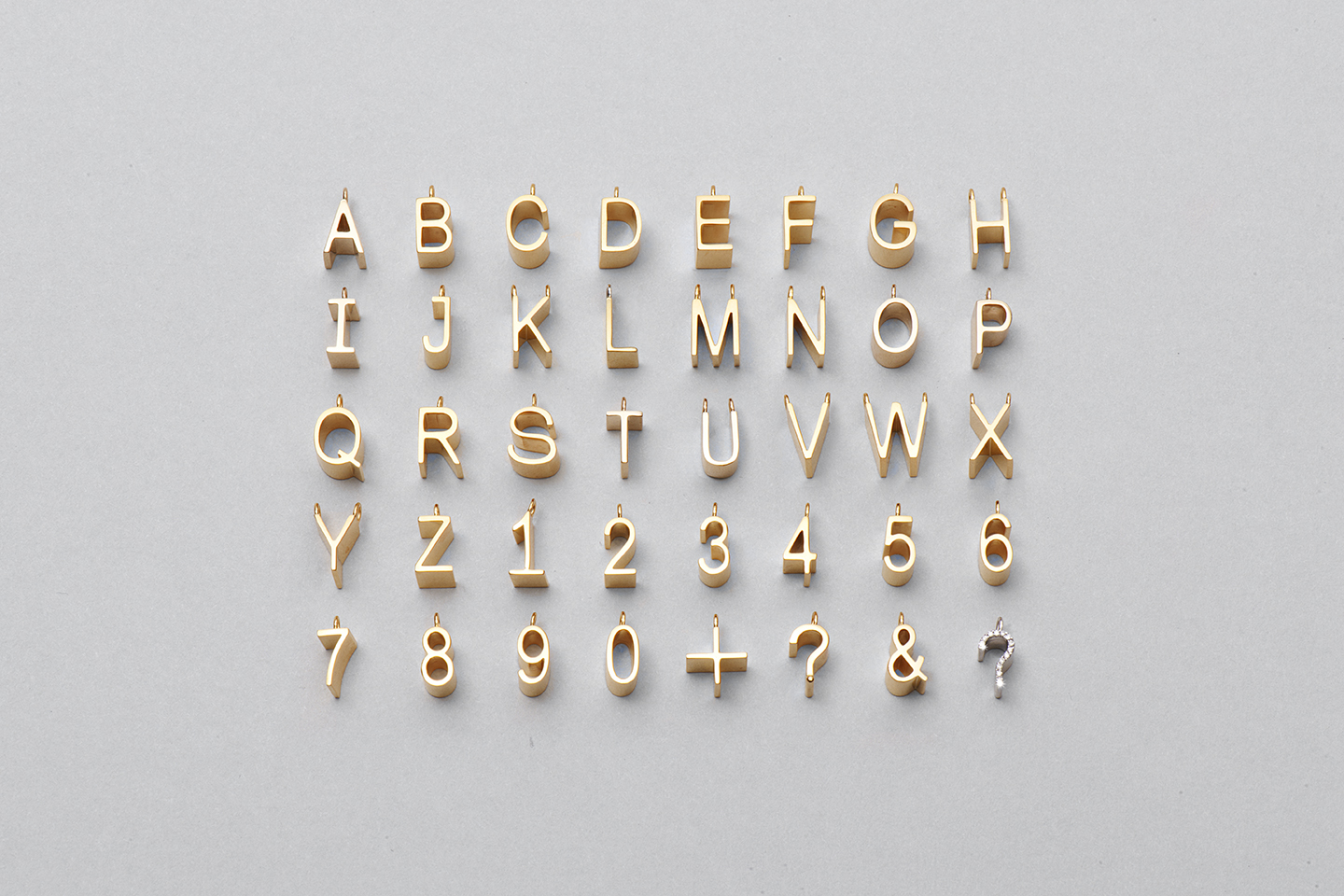
Rabun also cites a memorable event where she met the feted jewellery designer Vivianna Torun as giving her a sense of perspective and a real life exemplar of resilience and its power. “I met Vivianna Torun during the centenary celebrations for Georg Jensen in 2004 and at the time she wasn’t very well so we weren’t sure she was going to be attending the press conference and later that evening the gala…Other jewellery designers were there including Nana Ditzel but then suddenly you could feel this very beautiful energy near the door and we all turned around and looked and there she was. She had such an amazing aura that the whole room went silent and…this powerful positive spirit just came in to the room.” She pauses, before adding “Some people have that ability to shift energy when they walk in the room and she was one of those people one hundred percent. I met her and and I met her daughter Marcia who is amazing as well and we had a lovely moment together where we took a tour of the exhibition that was being held at the National Museum in Copenhagen.” Torun’s work was featured prominently in the centenary exhibition celebrating the Danish heritage house, as were other designers including Rabun herself. She concludes: “It was just beautiful… the three of us at the exhibition…It was one of those moments where you know it was meant to be.” The meeting was especially poignant for Rabun as she had long admired Torun: “The only designer who I have actually bought their pieces is Vivianna Torun, I think for so many reasons I connect with it. I love it aesthetically, I love her work ethic and I love that she was courageous. She was a Swedish woman who married an African American man in the 60s and lived in France when that wasn’t such an easy thing to do. She had mixed race children and they got a lot of abuse and through all of that she continued designing. It would have been so easy for her to just stop, of course…and I know that she struggled..but she just persevered through it all and then left to live in Jakarta and set up a studio there whilst still designing for Georg Jensen and at this studio they created all her pieces so the community was thriving too.” Purpose and fortitude are a running theme and preferred connection point for Rabun, who in many ways possesses the same qualities.
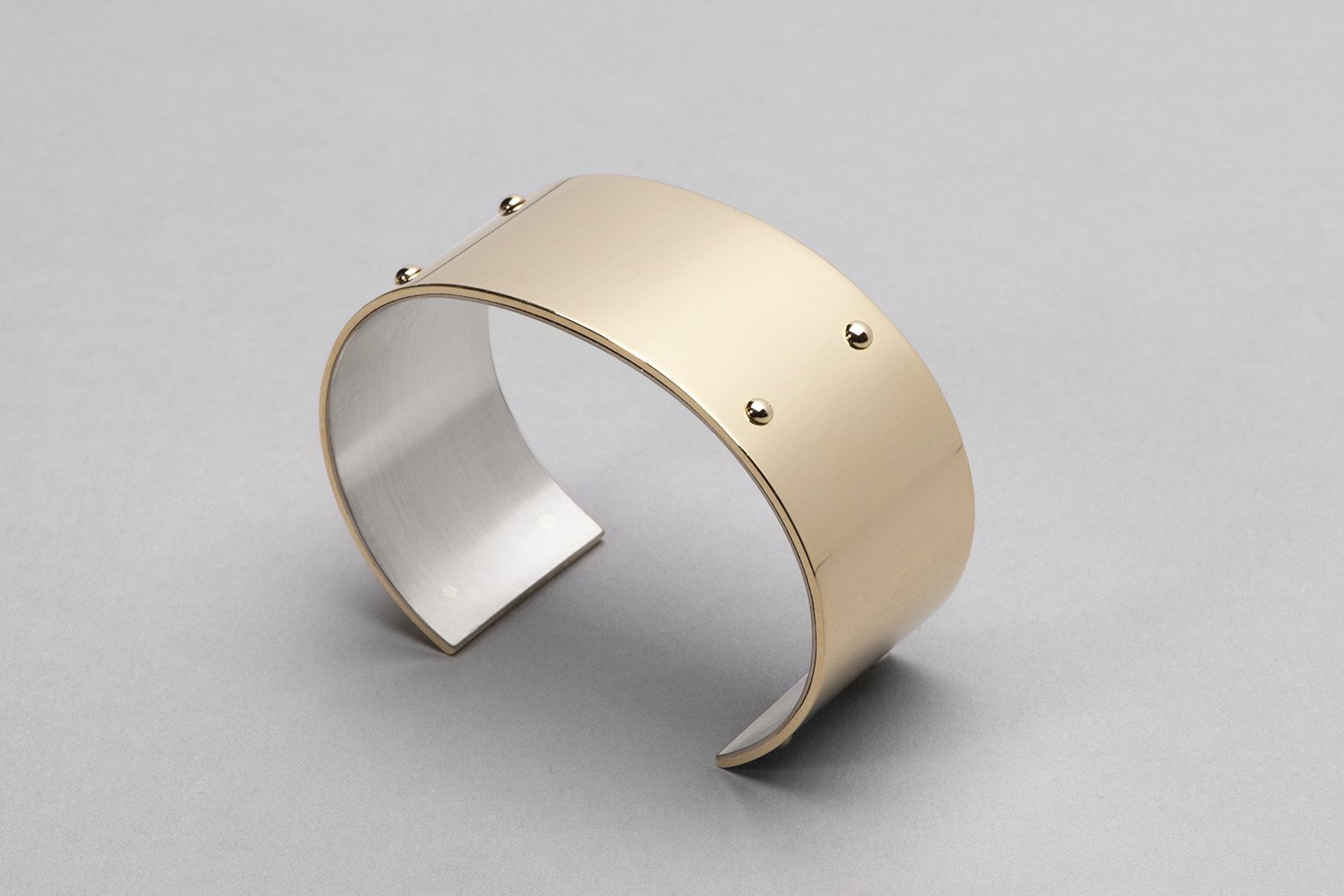
A Living Legacy
With numerous professional achievements under her belt, and zero desire to rest on her laurels, Rabun has been paying a lot of attention to her legacy and leveraging her influence to assist the next generation. Prior to the spread of Covid19 and the ensuing global lockdown, a trip to India precipitated a spiritual re-awakening, one which gave her a vision of how she could best use her talents to serve the greatest good. Collaboration and the power it has to unlock talent, create wealth and break down barriers to inclusion was at the forefront of her mind. She elaborates: “I do feel a responsibility to the next generation and mentorship is something that I do with a few design students…but we can definitely do more, particularly between African-Americans and Africans. I think that it’s very important that we collaborate on ideas that empower us and other people of colour in the world.” She has visited Senegal frequently and a recent trip to Nigeria and a trip to Ghana that was sadly postponed due to the pandemic were the beginnings of a framework she was creating to develop greater opportunities for cross pollination of ideas and expansion of opportunities.
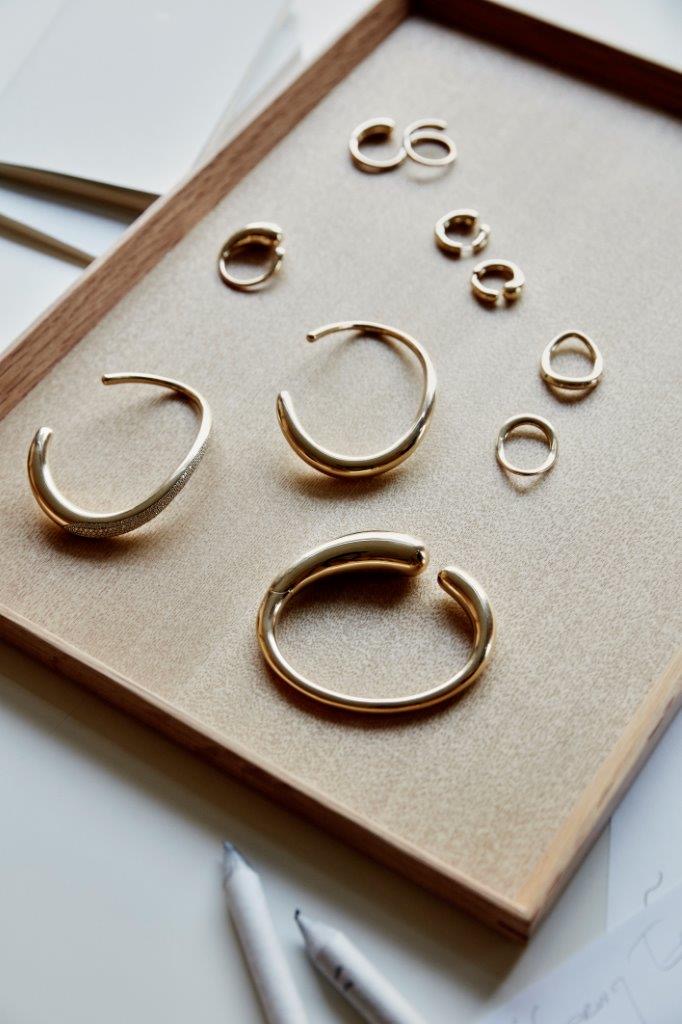
The season of self-reflection has also brought a strong tug to her country of origin, which is on the cusp of a potentially seismic change politically [since this interview took place, Joe Biden has won the US Presidential Election] She notes: “This is an important time for us politically. It is a very difficult time, it is a very challenging time but it is also the time for the work, for our creativity, for our talent, for our skills. I think that this is the moment. We are seeing changes and I am going to remain optimistic and say we will see more.” She is currently re-evaluating her own potential role in that story and is in touch with a number of her peers who share a similar vision such as architect David Adjaye who returned to Accra after decades spent in the UK and US: “I think it is important that David has gone back to Ghana, to be part of that new story, and it is my intention to spend part of my time in America as well. I have been in England for thirty years but I think it is an important time for me to perhaps inspire the next generation of young jewellery designers or young women that probably have no idea that it is possible to enter this realm. If I can open that door for them that [would be] very powerful and I think it is my duty to do that.”
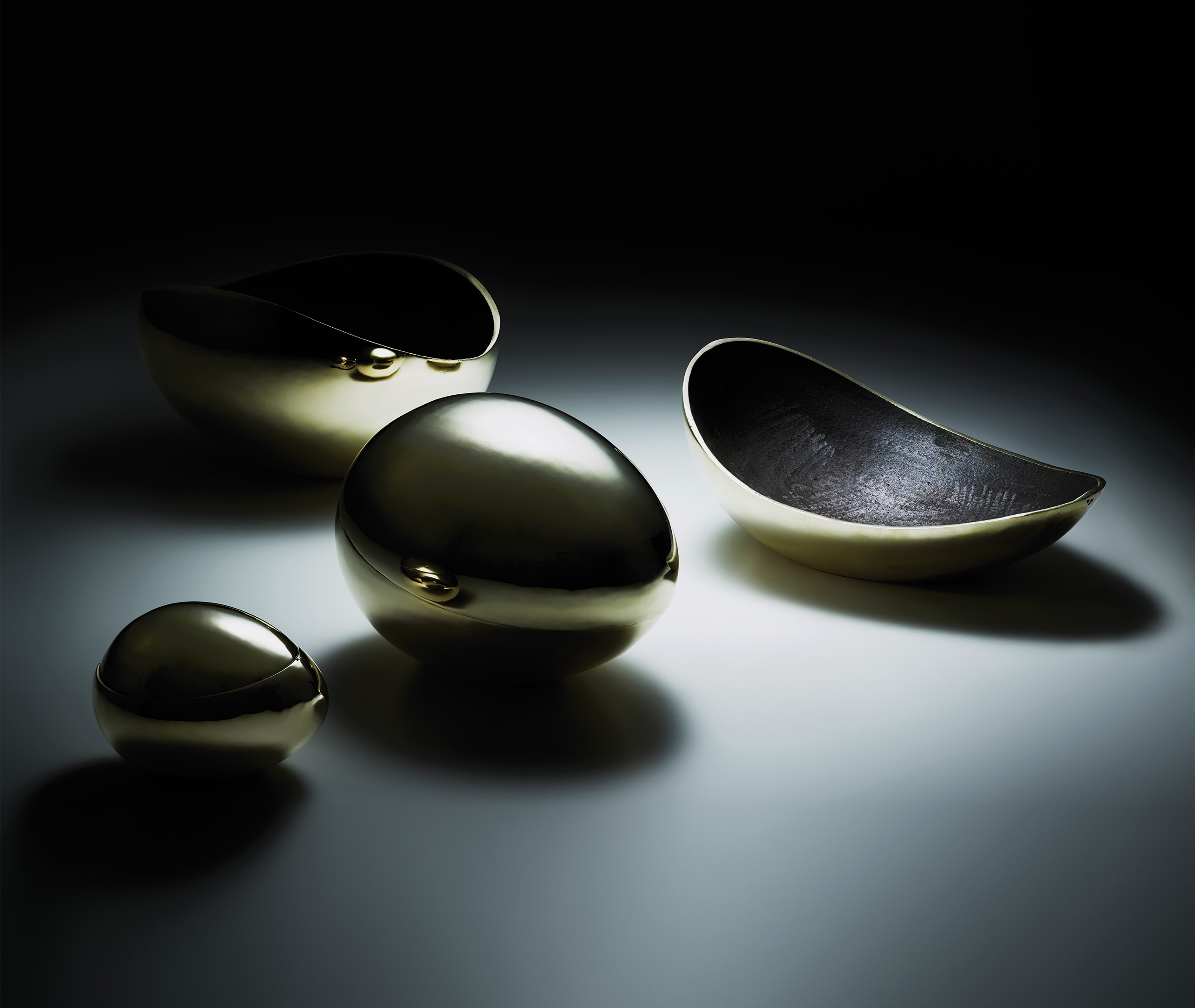
Although it has always been about the jewellery, and her work in its development, refinement and expansion of parameters speaks to this, Rabun has paradoxically always been so much more than a jewellery designer. For designers younger than her, she is an emblem of what it looks like to be at the top of your game, without compromising your vision or pandering to systems or individuals that might think less of you by virtue of your gender or colour or both. Her humility regardless of her position as the world’s most famous and lauded black jewellery designer, is seen in how she neither courts or is occupied by the trappings of fame. She is grateful for recognition but her eyes visibly light up when talking about the work itself, how it has developed or the themes explored in particular series. She is equally animated when speaking of the. transformative power jewellery has had on clients’ lives, how a piece has become a much treasured family heirloom, or takes a wearer back to particular point in time when they were happiest. She also loves setting herself a new challenge, as her continued interest in designing objects illustrates. She has always designed objects for her own personal use, but the remit has expanded, and was seen most notably in a collaboration for Wallpaper Magazine’s Handmade Project with the Vienna based studio of Carl Aubock overseen by Nina Hertig of Sigmar Gallery. The finished pieces were first exhibited at London Design Festival in 2017, and Rabun is set to do more projects in a similar vein in the future. Tellingly, her Instagram biography describes her as an ‘artist’, and this feels the more accurate nomenclature. Jacqueline Rabun is an artist and jewellery just happens to be her preferred medium. Henri Matisse famously said “Creativity takes courage.” and courage has anchored the ethos and governed the methodology of Rabun’s career so far. It takes guts to move continents, without a golden parachute or a bulging contact book and build a successful business doing what you love. Coupled with undeniable talent and a quiet confidence that destiny was guiding her steps and she became an unstoppable force. Personal preferences aside, the best art and the greatest artists attempt to express truth and share truths with the world. Rabun, ever generous invites us to do so twice; first in the selecting of the truths we wish to reveal with our jewellery choices, and secondly in inviting us in the wearing, to share those truths with others.


